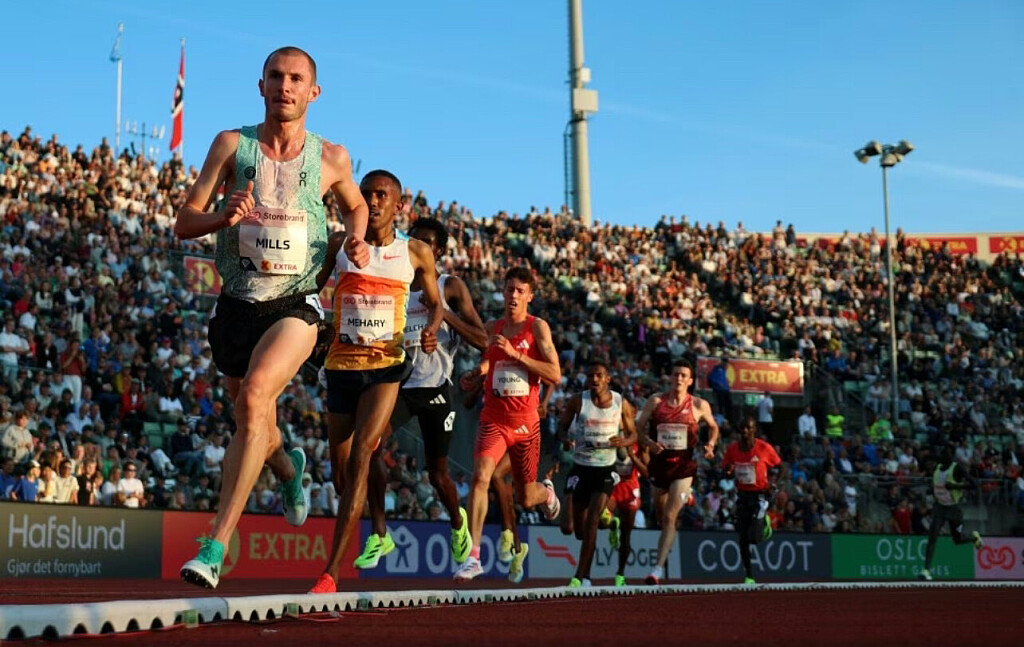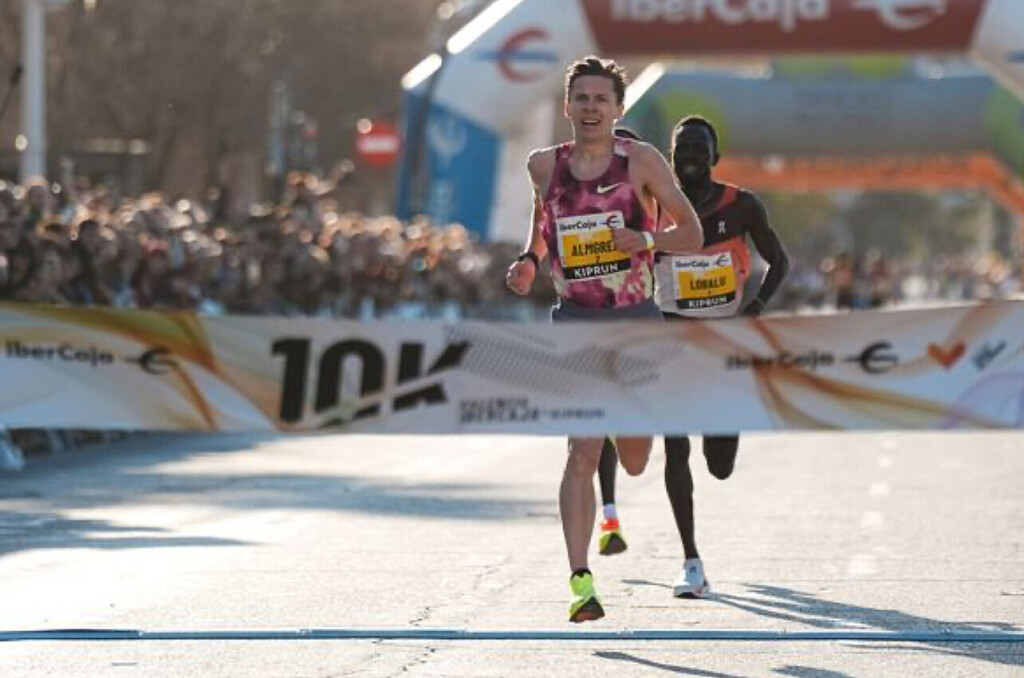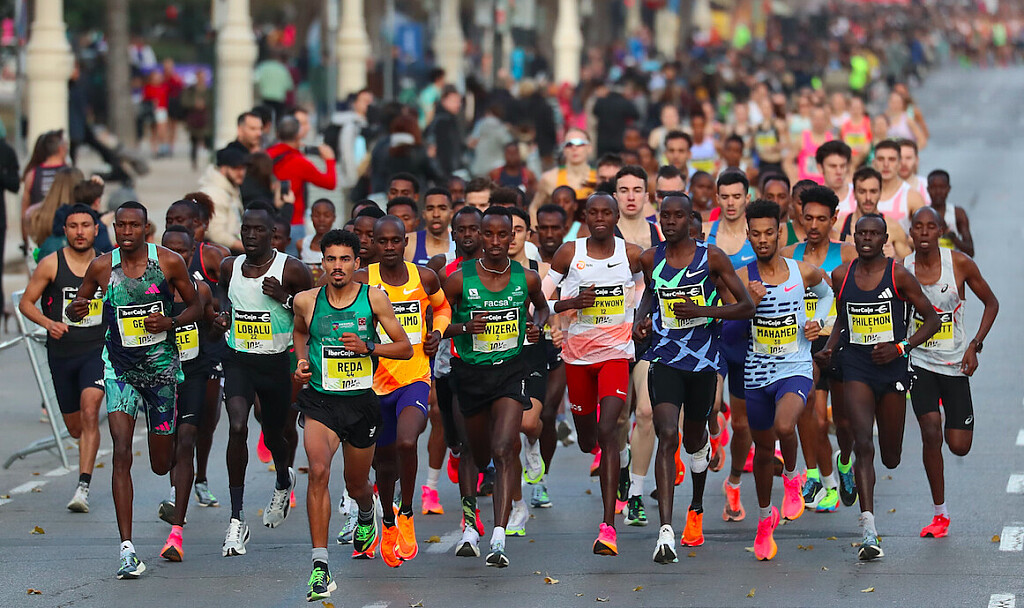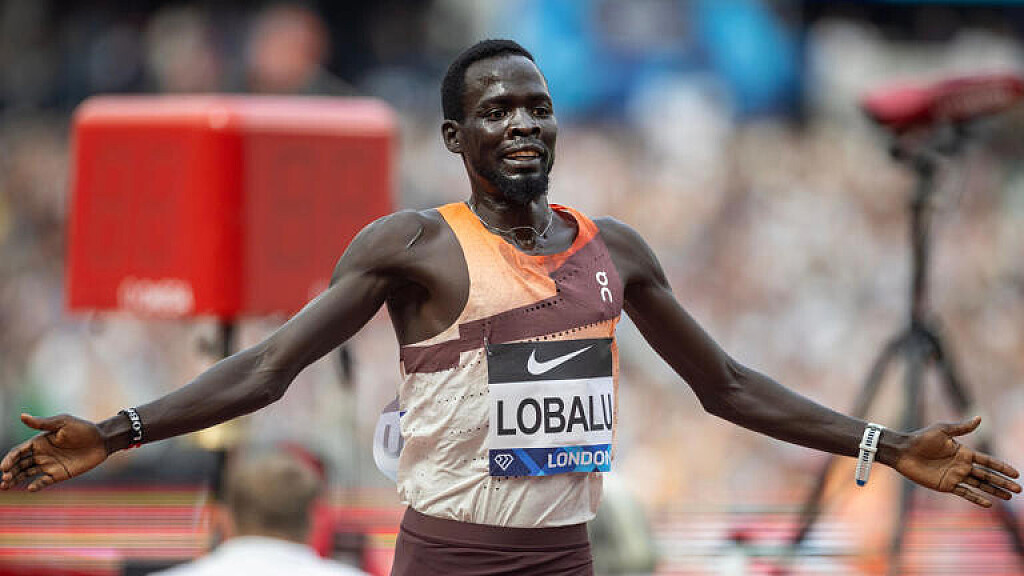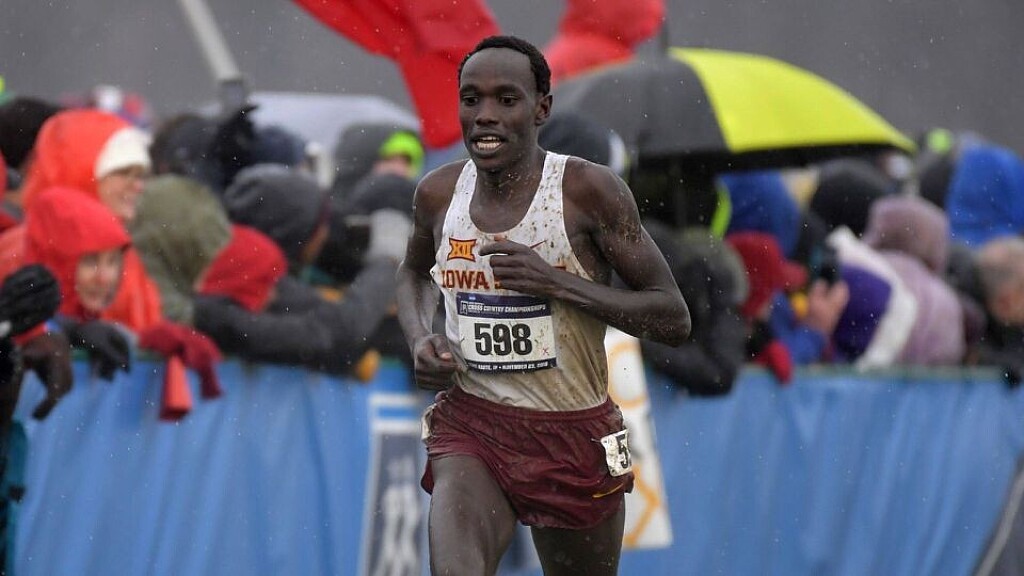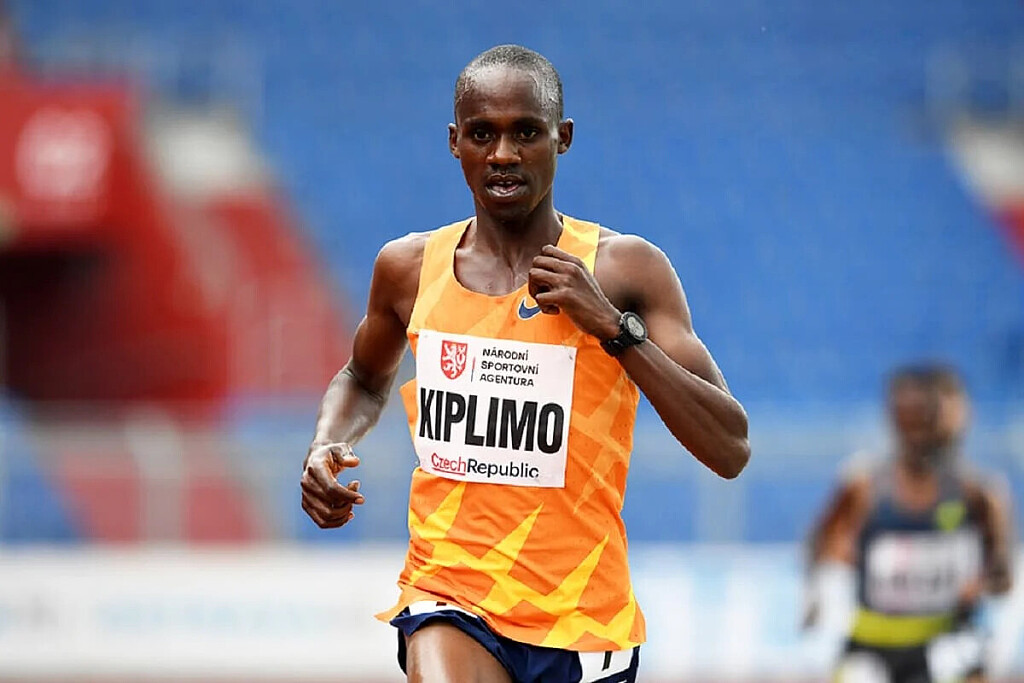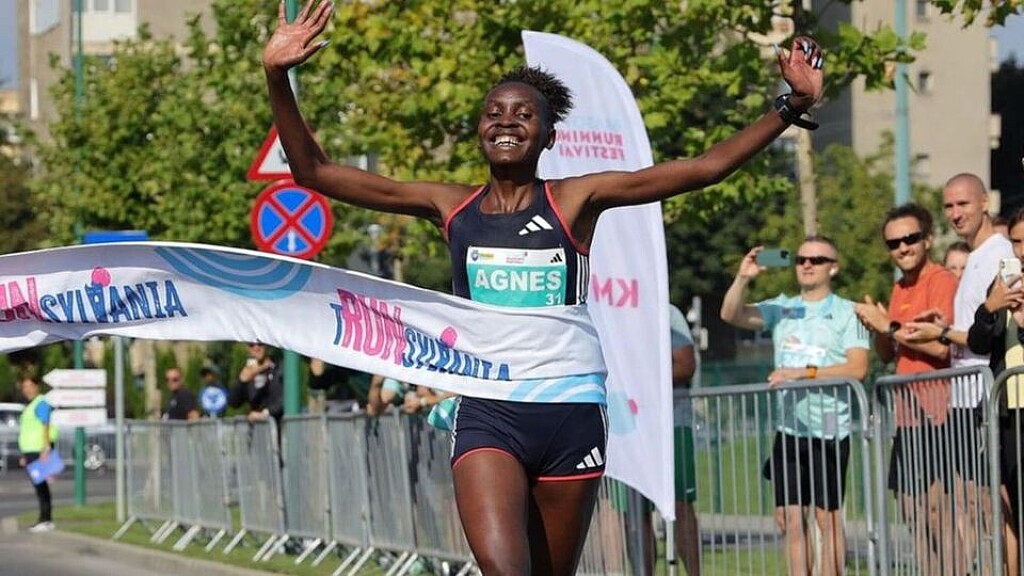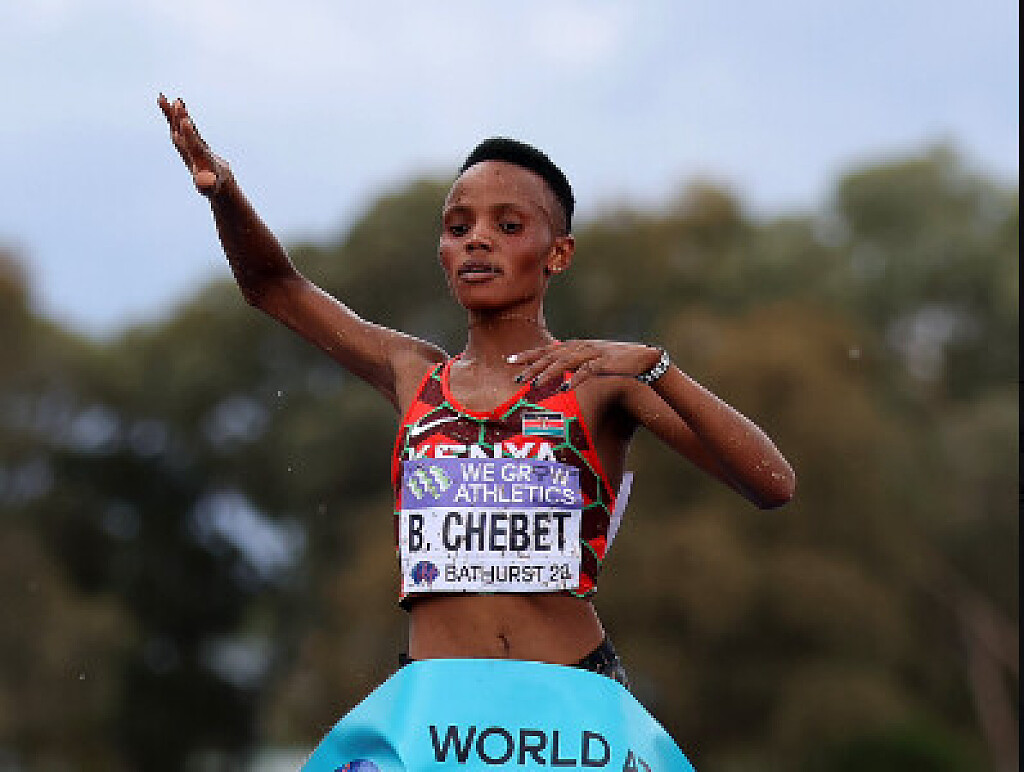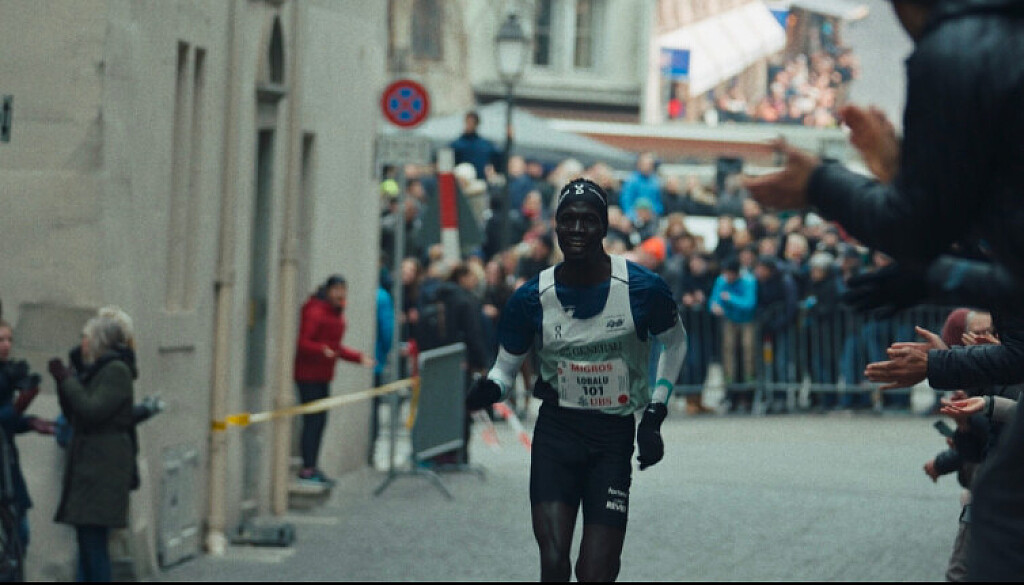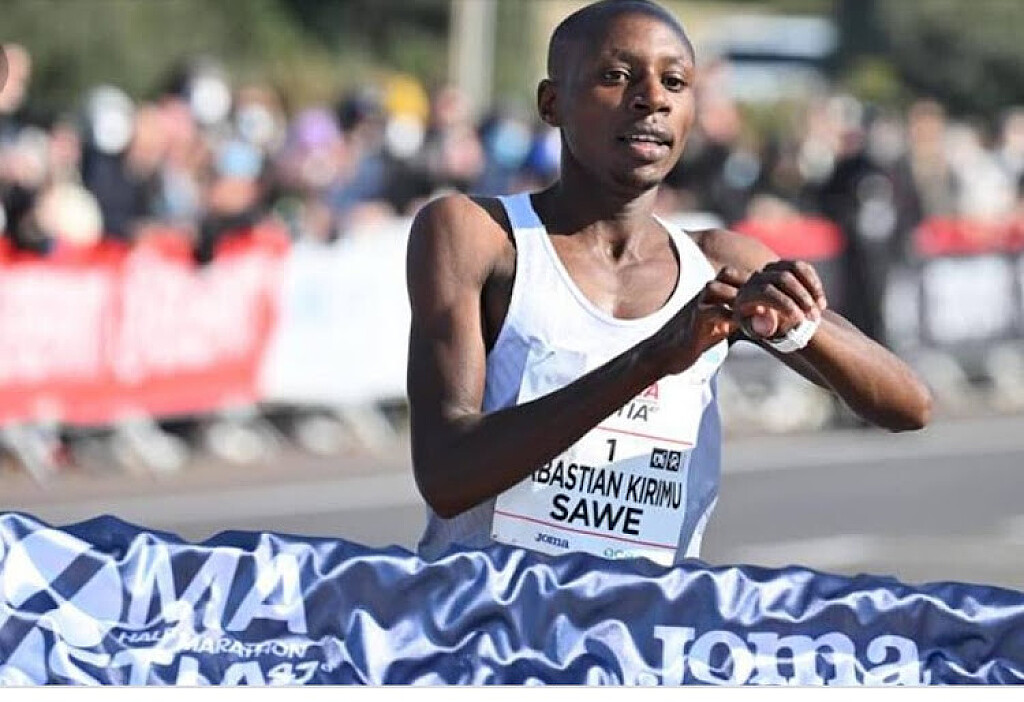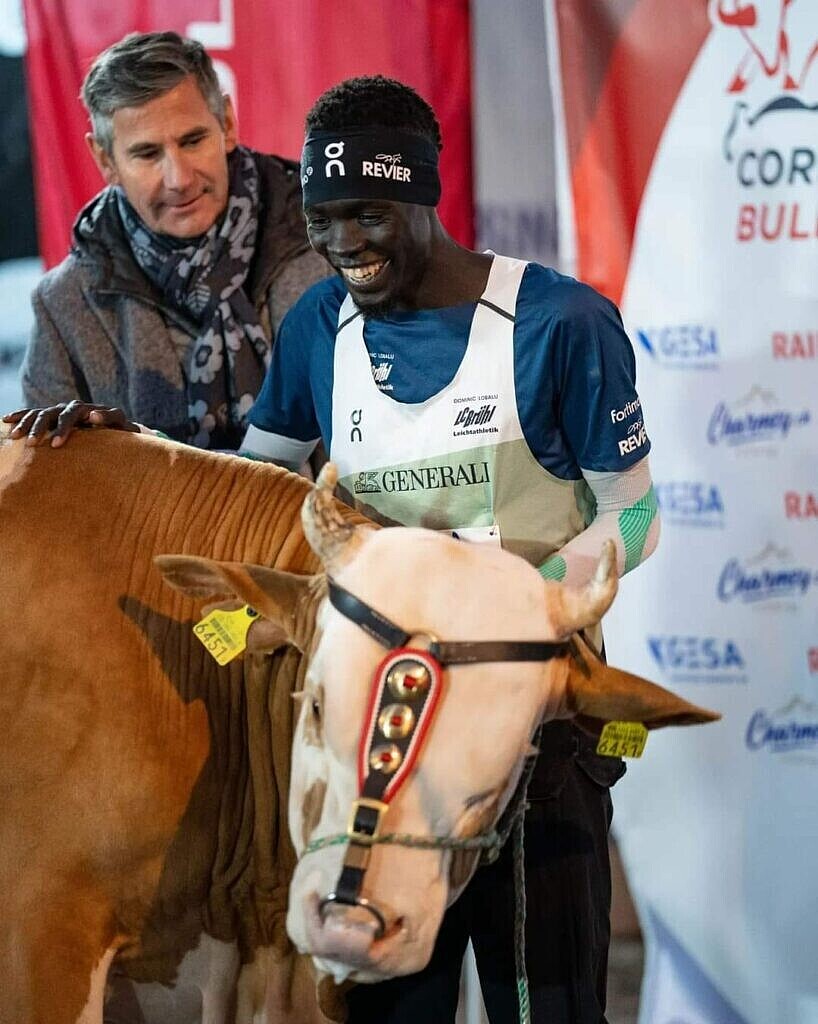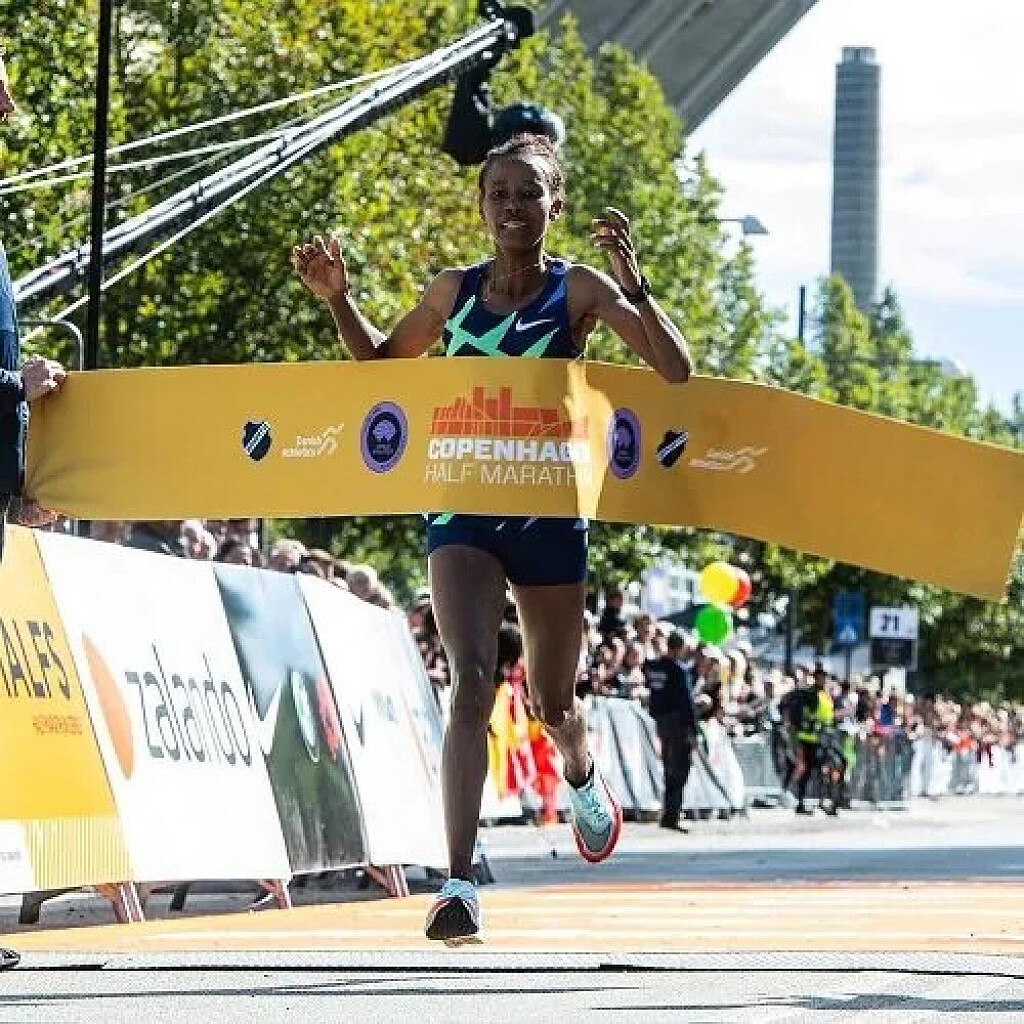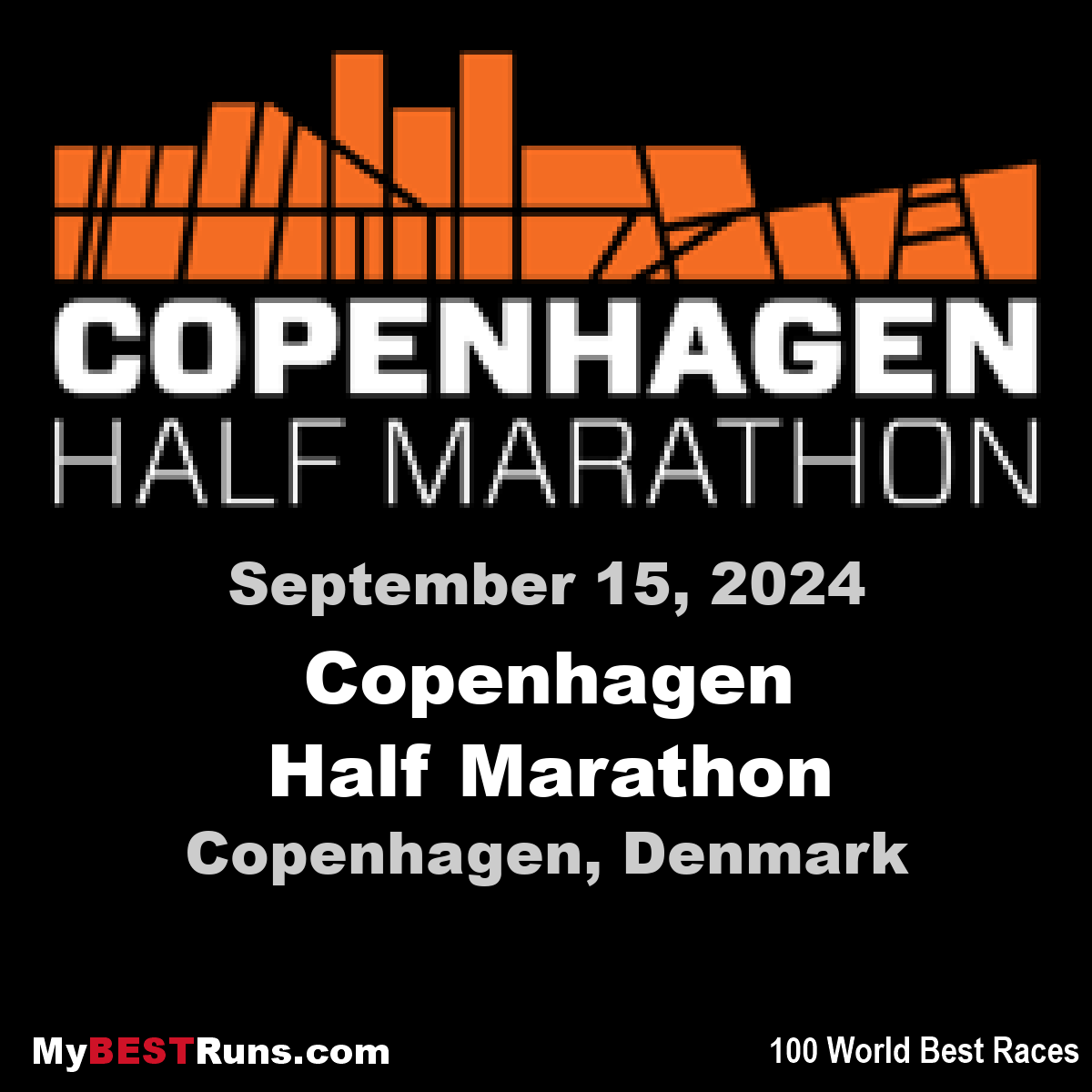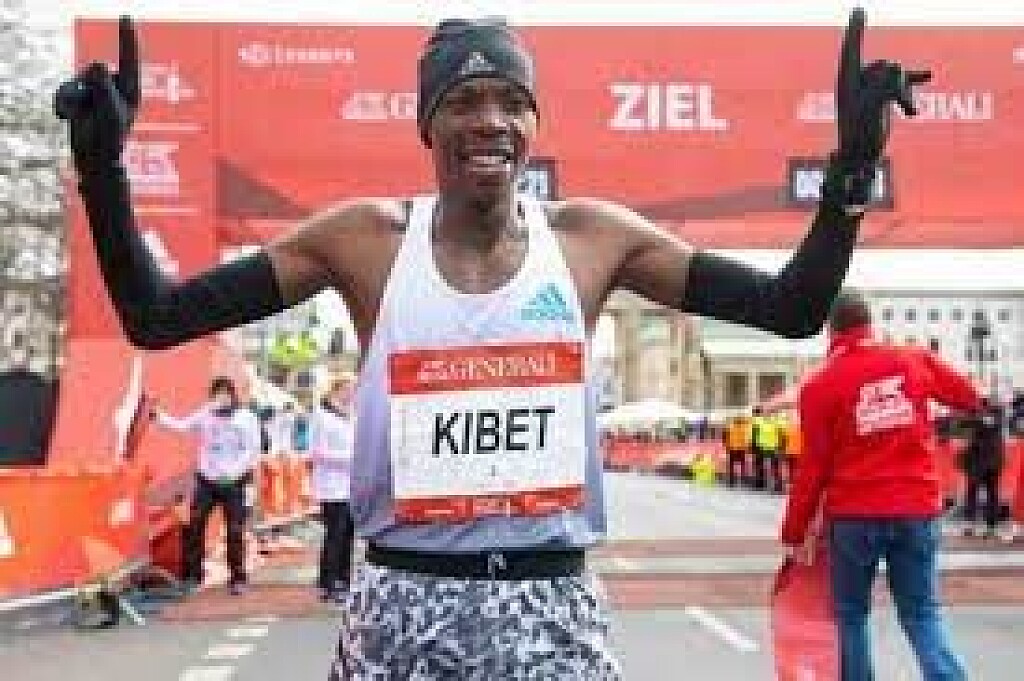Running News Daily
Running News Daily is edited by Bob Anderson. Send your news items to bob@mybestruns.com Advertising opportunities available. Train the Kenyan Way at KATA Kenya and Portugal owned and operated by Bob Anderson. Be sure to catch our movie A Long Run the movie KATA Running Camps and KATA Potato Farms - 31 now open in Kenya! https://kata.ke/
Index to Daily Posts · Sign Up For Updates · Run The World Feed
Articles tagged #Dominic Lobalu
Today's Running News
George Mills Smashes British Record with 12:46.59 in Oslo Diamond League 5000m
British distance running has a new star. At the 2025 Oslo Diamond League, George Mills delivered a brilliant performance in the men’s 5000 meters, clocking 12:46.59—a new British national record and one of the fastest times ever run by a European.
The 25-year-old’s performance shattered the previous UK record of 12:57.76 held by Sir Mo Farah and marked Mills’ official arrival on the global stage.
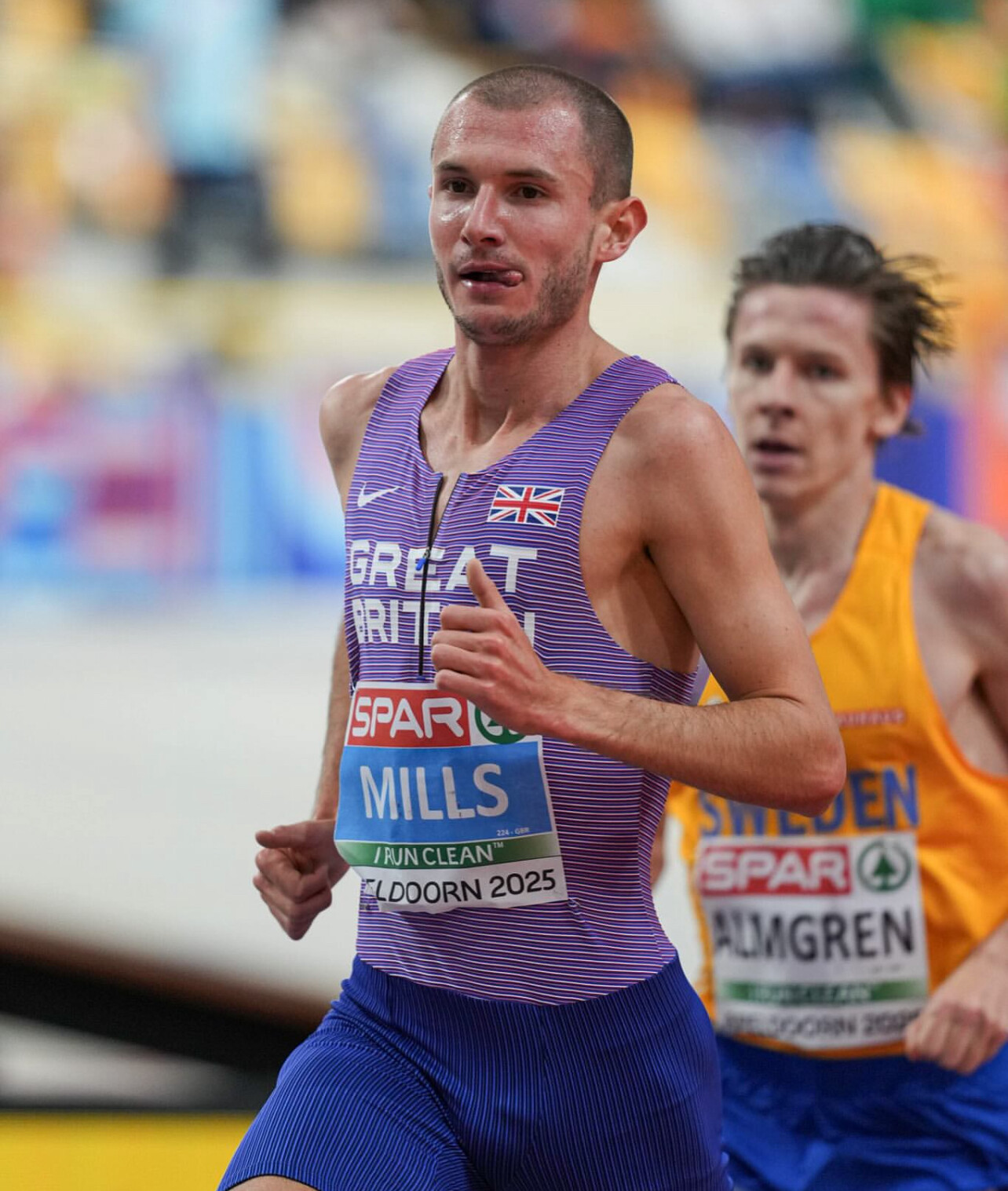
Historic Performance in a Historic Race
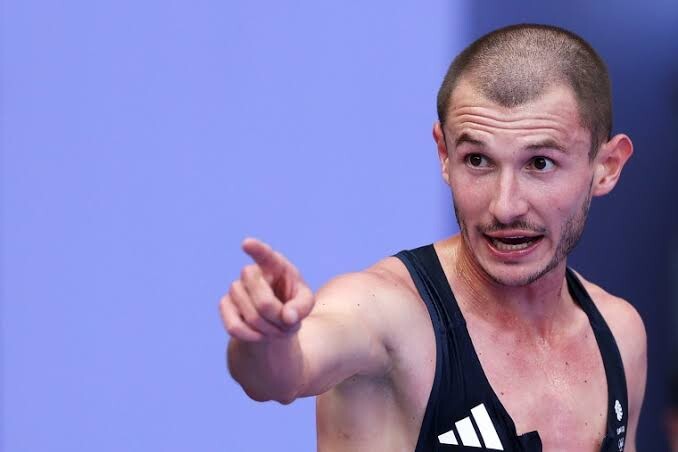
Mills’ 12:46.59 came in a race loaded with talent and fireworks. He crossed the line just behind American Nico Young, who won in 12:45.27 to break the American record. It was the deepest 5000m field in Diamond League history, with eight athletes running under 12:51.
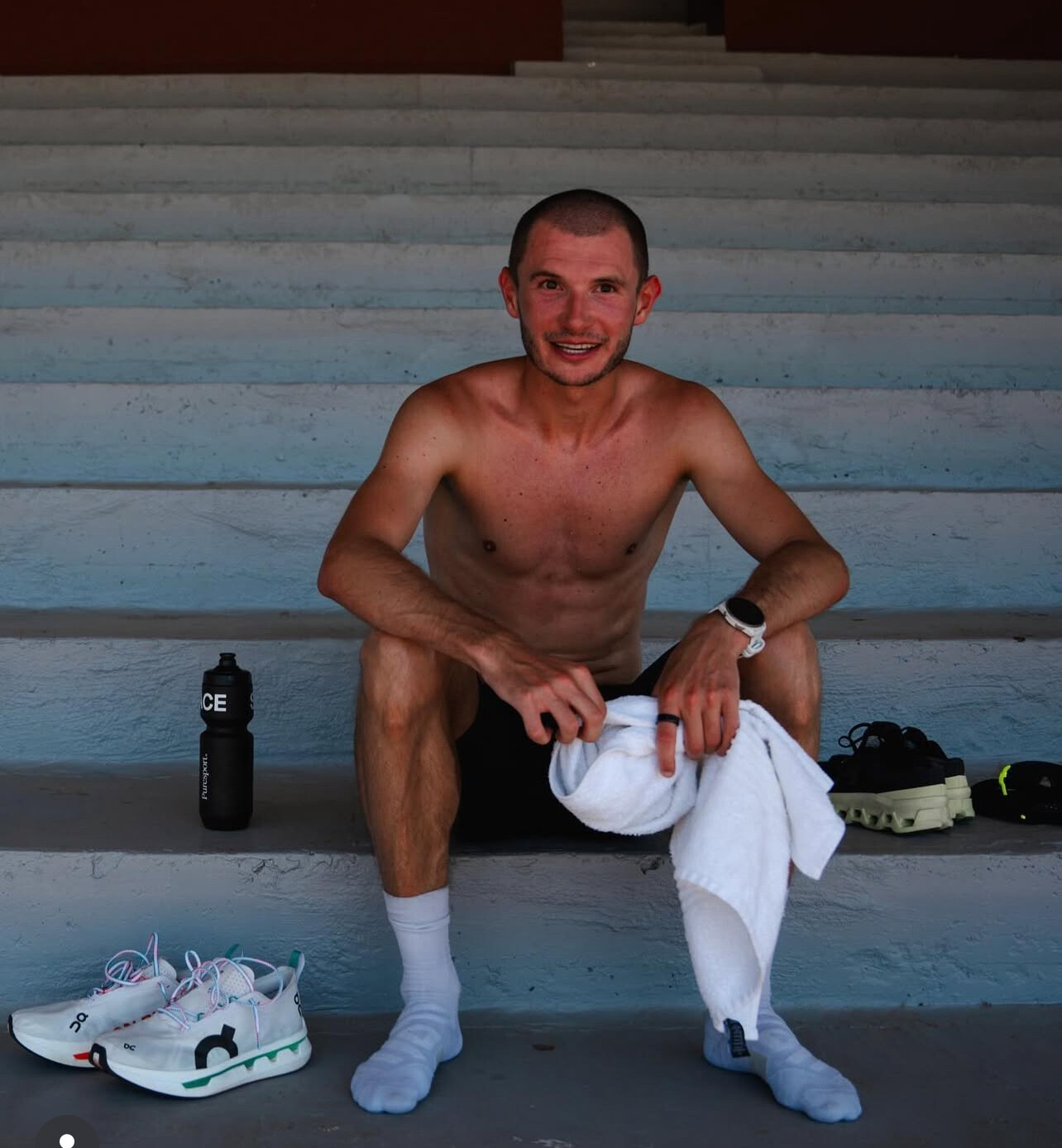
Mills stayed composed throughout the early laps, staying close to the pacers and navigating through a crowded lead pack. As the bell rang, he surged into position and kicked hard down the homestretch, finishing just fractions behind Young while securing the #2 spot on the European all-time list—behind only Mohammed Mourhit of Belgium (12:49.71 in 2000).
From 1500m Talent to 5000m Powerhouse
Originally known as a 1500m specialist, Mills has successfully transitioned up in distance. The former European U23 champion and son of Olympic 1500m finalist Danny Mills has long shown promise on the track, but Oslo marks his greatest performance yet.
He now holds a faster 5000m time than British legends like Mo Farah, Dave Moorcroft, and Andy Vernon—and has proven that he belongs on the start line with the very best in the world.
Final Times from Oslo
• Nico Young (USA) – 12:45.27 – American Record
• George Mills (GBR) – 12:46.59 – British Record
• Thierry Ndikumwenayo (Burundi) – 12:47.67 – Personal Best
• Dominic Lobalu (Switzerland) – 12:50.87 – Swiss National Record
What’s Next for George Mills?
With the World Championships on the horizon, Mills is now firmly in the conversation as a potential medalist. His ability to hang with the world’s fastest over 5000 meters—and still close hard—bodes well for tactical championship-style racing.
British distance fans may have found their next global star.
by Boris Baron
Login to leave a comment
Almgren breaks European 10km record in Valencia
Kenya's Hellen Ekalale Lobun and Sweden’s Andreas Almgren claimed victories at the 10K Valencia Ibercaja by Kiprun, a World Athletics Label road race, on Sunday (12).
Lobun, who took the women’s title in 29:30, moved to fourth on the world all-time list while Almgren took 11 seconds off the European record, winning the men’s race in 26:53.
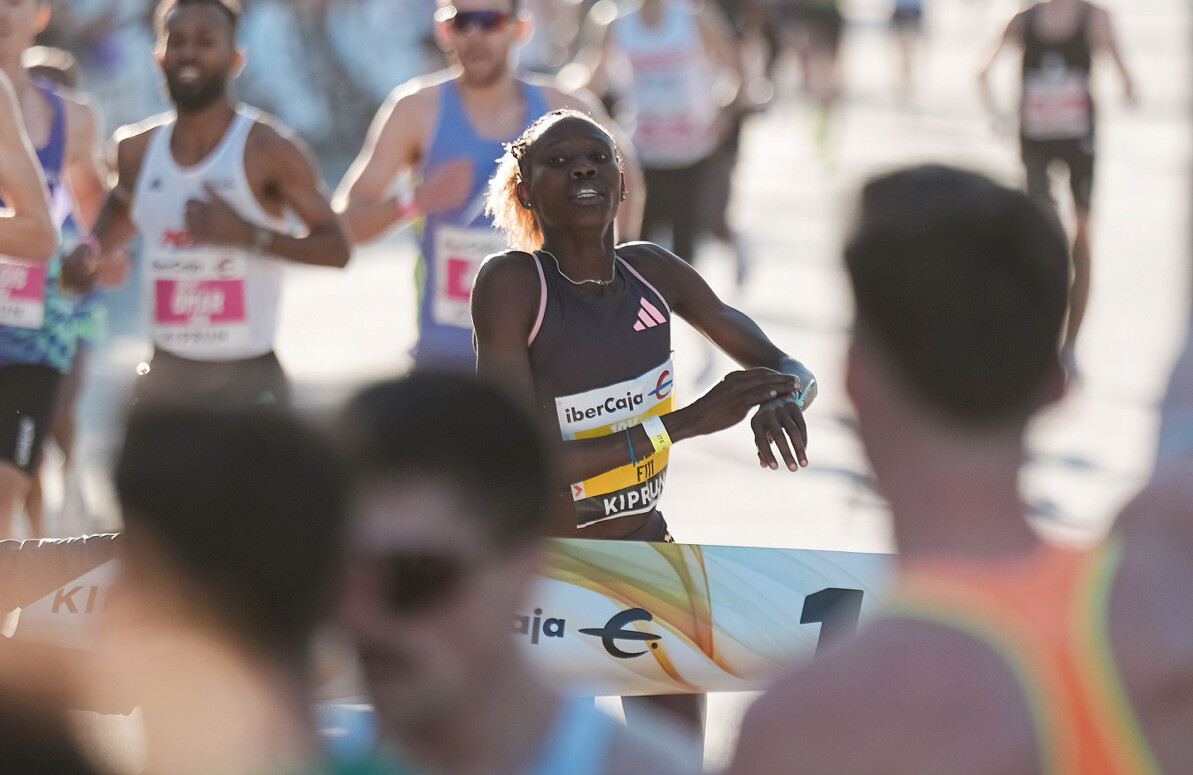
In a race of incredible depth, the first four women now feature in the top 10 on the world all-time list, while the men’s contest marked the first time 11 athletes had finished inside 27:30.
The women’s contest had been billed as an assault on the Ethiopian record (29:14) by pre-race favourite Fotyen Tesfay, who won the Valencia Half Marathon in 1:03:21 in October. Paced by Spain’s Abedarrahman El Khayami, the lead quartet of Tesfay, Lobun, Girmawit Gebrezihair and teenager Asayech Ayichew went through 3km in 8:46, putting them on course to break the world record of 28:46.
The cadence soon dropped, however, and Tesfay went through 5km in 14:31 with Lobun five seconds behind, Ayichew another two seconds in arrears and Gebrezihair clocking 14:42. Soon after, Tesfay had been reeled back in, and the lead trio – Tesfay, Lobun and Gebrezihair – reached 7km in 20:29.
Approaching the final kilometre, Tesfay dropped back, leaving Lobun and Gebrezihair to duel for the victory. Lobun broke away from her Ethiopian rival with 600 metres to go, crossing the line in 29:30 in what was her first standalone 10km race (though she has previously contested two half marathons).
Gebrezihair was second in 29:34, taking more than a minute off her previous best, while a tired Tesfay (29:42) managed to hold off Ayichew (29:43), both women setting PBs. It’s just the second time in history – after last year’s Valencia 10k – that four women have finished inside 30 minutes.
“I didn’t expect to win but I knew I was in good shape,” said Lobun who is based in Kirenget and is coached by Williams Langat. “It was my first 10km ever so my debut has been fantastic. I’ll next compete on 23 February at the Lobo Village cross country race in Eldoret and later I’ll focus on the track season as I try to make the Kenyan team for the World Championships in Tokyo.”
Despite the absence of the scheduled pacemaker Rodrigue Kwizera, who was forced to withdraw because of flu, the men’s contest ended up being one of the best ever in terms of depth.
Kenya’s Daniel Kinyanjui, Vincent Langat and Benard Langat, along with Ethiopia’s Tadese Worku and Telahun Haile Bekele took charge of the pacing duties with Almgren, Switzerland’s Dominic Lobalu and Belgium’s Isaac Kimeli also part of the leading pack. The opening 3km was covered in 8:13 and half way was passed in 13:43, suggesting a finishing time well outside 27 minutes.
The pace soon started to increase, though, as Bekele, Langat and Lobalu started to push harder, reaching 7km in 19:05 with seven athletes in the lead pack. The pace, now at 2:40/km, continued to increase as Lobalu, Langat and Almgren reached 9km well ahead of the rest.
European 10,000m champion Lobalu tried to surge in the closing stages, but Langat and Almgren stayed on his shoulder. With just seconds to go, track specialist Almgren put his kick finish to good use and edged in front to cross the line in 26:53, having covered the second half in 13:10.
Lobalu settled for second in 26:54 and Langat completed the podium in 26:55. Further down the field, Uruguay’s Santiago Catrofe set a South American record of 27:16 in eighth.
“Last year I ran 27:20 here and I knew I could run much faster today,” said Almgren, the 2014 world U20 800m bronze medallist who has moved up in distance in recent years and ran 26:53.57 for 10,000m on the track last year. “It’s my first European record so I’m over the moon; I’ll now spend four weeks in the altitude of Sierra Nevada to focus on my next target, the 3000m at the European Indoor Championships.”
In addition to the area records, national records were also set by Switzerland’s Lobalu, Eritrea’s Dawit Seare (27:21), Great Britain’s Rory Leonard (27:38), Spain’s Ilias Fifa (27:41) and Ireland’s Efrem Giday (27:43).
Leading results
Women1 Hellen Lobun (KEN) 29:302 Girmawit Gebrzihair (ETH) 29:343 Fotyen Tesfay (ETH) 29:424 Asayech Ayichew (ETH) 29:435 Fentaye Belayneh (ETH) 30:006 Christine Chesiro (KEN) 30:067 Maurine Toroitich (KEN) 30:288 Miriam Serem (KEN) 30:299 Alice Chemtai (KEN) 30:4710 Lomi Muleta (ETH) 31:01
Men1 Andreas Almgren (SWE) 26:532 Dominic Lokinyomo Lobalu (SUI) 26:543 Vincent Langat (KEN) 26:554 Daniel Kinyanjui (KEN) 27:065 Isaac Kimeli (BEL) 27:106 Benard Langat (KEN) 27:117 Telahun Haile Bekele (ETH) 27:138 Santiago Catrofe (URU) 27:169 Dawit Seare (ERI) 27:2110 Celestin Ndikumana (BDI) 27:23
Login to leave a comment
10k Valencia Trinidad Alfonso
Around the corner we have one more edition of the 10K Valencia Ibercaja, organized one more year by the C. 10K VALENCIA Athletics premiering the running season in Valencia. It is a massive urban race with more than 3,000 registered annually of 10 kilometers, where the maximum duration of the test will be 1 hour 40 minutes (100 minutes). The...
more...Nearly 100 elite athletes of 25 nationalities will compete for victory at the 10K Valencia
On January 12, thousands of runners will fly through the fastest 10K course in the world. Dominic Lobalu, Isaac Kimeli and Andreas Almgren arrive in Valencia with the goal of breaking the European 10K record.
The 10K Valencia Ibercaja by Kiprun is finalizing the details to offer again a great show in what will be its 17th edition this coming January 12. The race, which closed its registration last December 22 after exhausting the available numbers, will feature a cast of elite athletes of up to 25 nationalities.
According to José Enrique Muñoz Acuña, Coordinator of Elite athletes and sports director of the race, the goal this year "is to continue the level of sporting demand that has the 10K Valencia as the best 10K in Spain and holder of world records for both men and women". "This January 12 we will once again experience an event of the highest level, in which -if the conditions respect us- athletes can meet their goals and we can once again see men under 27 minutes and women under 30 minutes," he added.
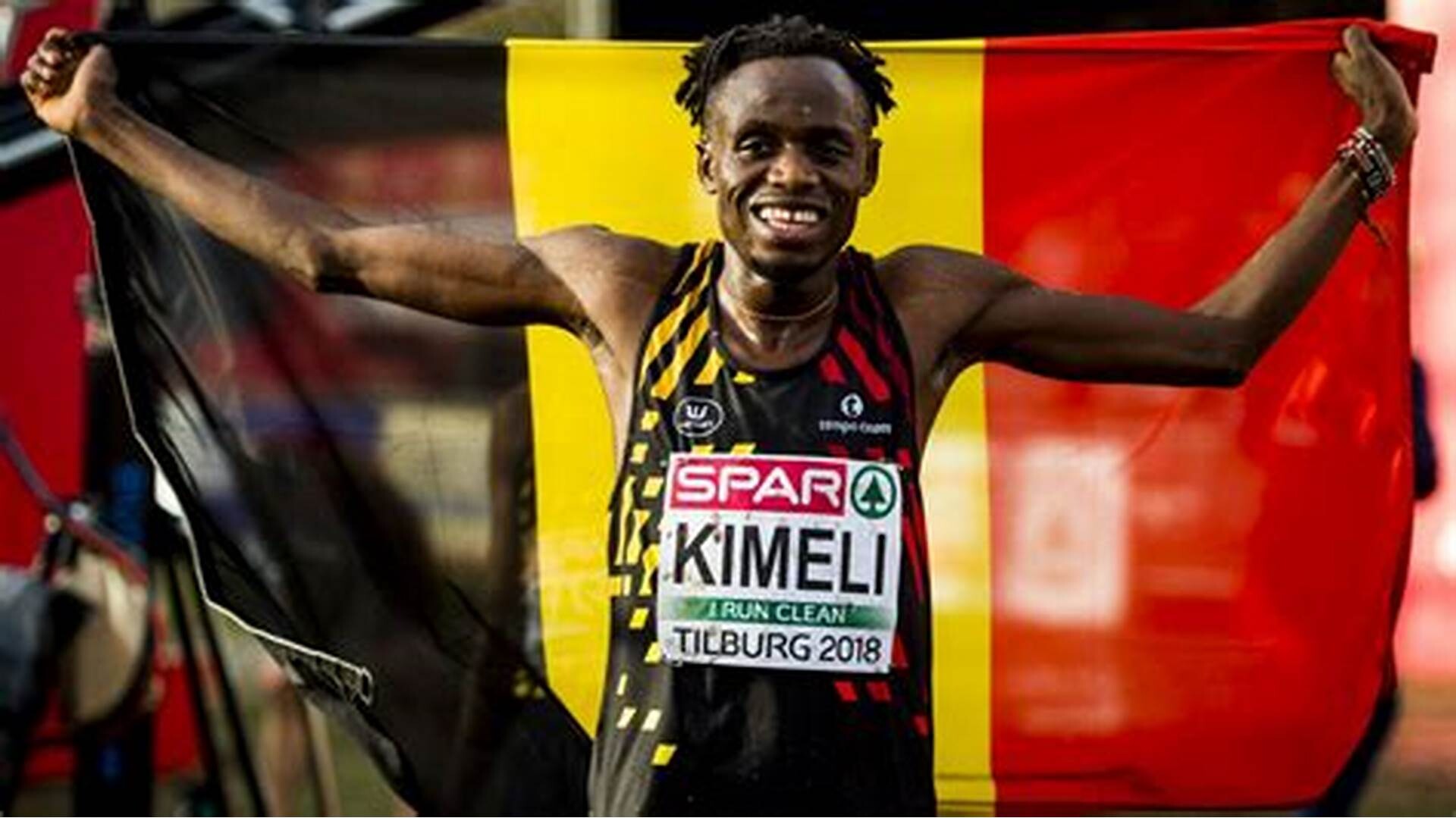
As usual in the 10K Valencia, in men "we find a list that stands out for the good level of European athletes, who come with the aim of breaking the European record", which is currently held by Etienne Daguinos (27:04, Lille 2024). For this "there are three clear favorites: Dominic Lobalu (Switzerland), Isaac Kimeli (Belgium) and Andreas Almgren (Sweden), who will have a hare to launch the race to go under 27 minutes."
As for the African armada, several athletes stand out, such as the Ethiopians Telahun Bekele, Getnet Wale and the debutant in the distance Samuel Tefera, double world indoor 1,500ml champion. In addition to many other athletes who can opt for victory, such as Kenyans Daniel Kinyanjui, Vincent Langat or Meshack Lelgut, "In total, we have 32 men with records under28 minutes".
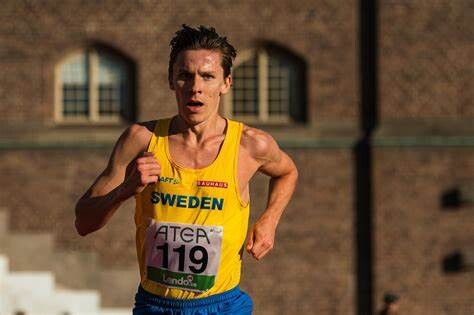
As for the Spanish representation, several names stand out: Abdessamad Oukhelfen, current national record holder of the distance with 27:44 made last January on this circuit, Daniel Arce, who comes from running very fast in León, Juan A. Pérez Moreno, Víctor Ruiz and Aarón Las Heras. It is worth mentioning the Uruguayan athlete living in Spain, Santiago Catrofe, who comes to Valencia with the intention of improving the South American AR, which is currently held by the Argentinean Antonio Silio (27:51, 1990).
Women, going all out
In the women's field, three clear favorites stand out: Fotyen Tesfay (Ethiopia), Christine Chesiro (Kenya) and the young and talented Ethiopian athlete Asayech Ayichew, who won the Great Ethiopian Run a few weeks ago. "In addition to them we have to add a great cast of African athletes. They all come to Valencia to improve their records".
In European terms, several athletes stand out, such as Slovenia's Klara Lukan, France's Mekdes Woldu and England's Abbie Donnelly, all of them looking to break their current records.
In the Spanish field, we have two athletes who arrive in a similar form as Alicia Berzosa and Laura Priego, the clear favorites to win in the Spanish category without forgetting the athlete of the Serrano Athletics Club, Maria Jose Perez.
It is worth remembering that the 10K Valencia, which achieved the World Record in men in 2020 (26:24), managed to break all forecasts in the last edition when the athlete Agnes Jebet beat the 10K world record with a 28:46. On a national level, Abdessamad Oukhelfen won the Spanish men's 10K record with a time of 27:44.
Login to leave a comment
10k Valencia Trinidad Alfonso
Around the corner we have one more edition of the 10K Valencia Ibercaja, organized one more year by the C. 10K VALENCIA Athletics premiering the running season in Valencia. It is a massive urban race with more than 3,000 registered annually of 10 kilometers, where the maximum duration of the test will be 1 hour 40 minutes (100 minutes). The...
more...The orphaned refugee planning to make Olympic history
Two months ago, Dominic Lobalu thought he would not be able to compete at Paris 2024, but now he has the chance to make history.
The 25-year-old was ruled out of the Tokyo 2020 Games after claiming asylum in Switzerland, making him ineligible to compete for refugee teams.
After being given clearance by World Athletics to represent his adopted nation in May - despite not holding Swiss citizenship - Lobalu won two medals at the the European Championships the following month.
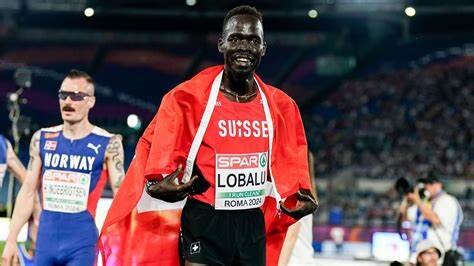
His gold in the 10,000m and bronze in the 5,000m persuaded the International Olympic Committee (IOC) to invite Lobalu to join its Refugee Olympic Team, and the South Sudanese-born runner will compete over the shorter distance in the French capital. “This is what I was dreaming for,” Lobalu told BBC Sport Africa.
“When I started my training, the goal was to go to the Olympics one day. And now I have it I'm so happy.”
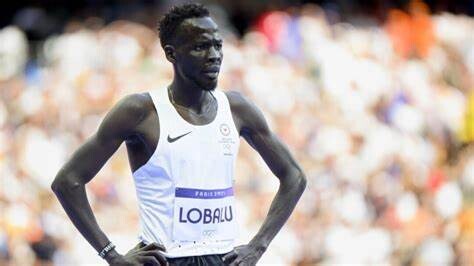
Boxer Cindy Ngamba has already assured the Refugee Olympic Team of its first ever medal, but Lobalu could upgrade her guaranteed bronze.
The first round of the 5,000m begins on Wednesday, but it has been a long journey for Lobalu to reach the start line. It is one that began in Sudan and has taken detours via Kenya and Switzerland. In 1998, Lobalu was born into a country in the middle of a long-running civil war.
He grew up in Chukudum, a small village in south-east Sudan which would become part of South Sudan when it gained independence in 2011.
The conflict, which ended in 2005, is estimated to have killed two million people. But two years after the war Lobalu's home village was raided by soldiers. The family fled but he was separated from his parents.
He wound up in an orphanage and then, at the age of nine, made it across the border to Kenya with the help of an Italian NGO.
The Kakuma Refugee Camp, a sprawling settlement in north-west Kenya run by the UNHCR, became his new home.
Now living in Switzerland, Lobalu is reluctant to talk in depth about his past before a competition, preferring to focus on the future.
However, he admits his experiences at the camp motivate him on the track.
by BBC News
Login to leave a comment
Paris 2024 Olympic Games
For this historic event, the City of Light is thinking big! Visitors will be able to watch events at top sporting venues in Paris and the Paris region, as well as at emblematic monuments in the capital visited by several millions of tourists each year. The promise of exceptional moments to experience in an exceptional setting! A great way to...
more...Edwin Kurgat confident of ending Kenya's 36-year wait for Olympics 5,000m title
Little-known Edwin Kurgat is inspired by his London Diamond League performance to win the 5,000m Olympics title that the country last claimed in 1988 Seoul Games.
Edwin Kurgat is now ready to stun the masses at the Paris Olympic Games and reclaim Kenya’s gold medal in the men’s 5000m following his London Diamond League Meeting third-place finish.
Kurgat, competing in the men’s 3000m, crossed the finish line third in 7:28.53 as Dominic Lobalu set a Swiss record, clocking a personal best time of 7:27.68 to win the race. Grant Fisher finished second in the hotly-contested race, clocking 7:27.99.
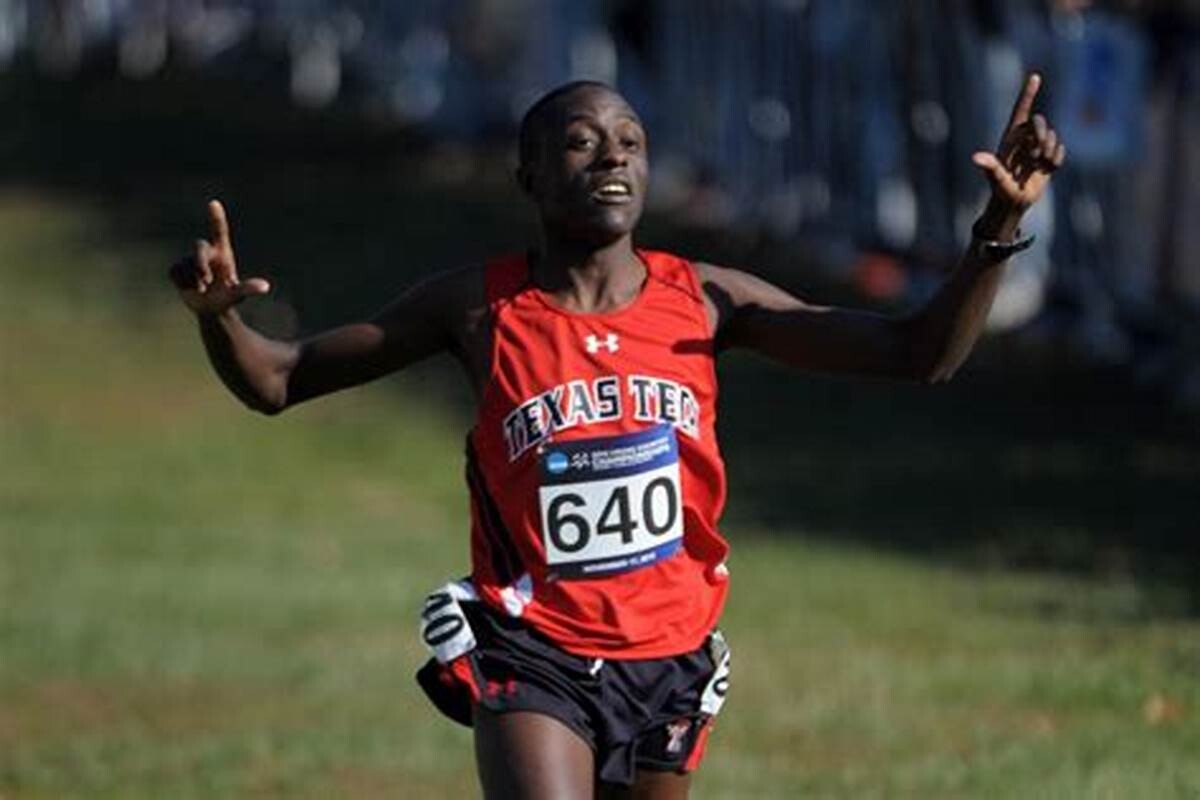
Kurgat admitted that the race is very vital as he heads to the Olympic Games. He disclosed that throughout the race, his body was feeling good and going under 7:30 is a sign of fireworks at the Olympic Games.
The last time Kenya won a gold medal at the Olympic Games in the men’s 5000m was at the 1988 Seoul Olympic Games courtesy of the late John Ngugi.
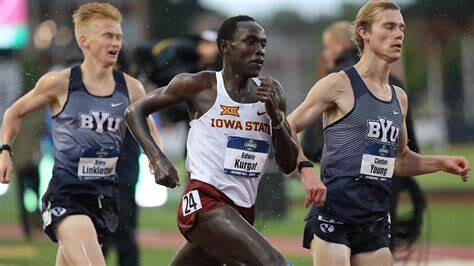
“Throughout the race I was feeling good, really composed. This was the race where I wanted to run good to get ready for the Olympics so I'm glad with how I ran,” Kurgat said.
“I'm feeling confident going in to Paris, running under 7:30 is a big achievement for me and now I'm just ready for what's to come. The crowd was amazing, they helped push me to get it finished,” he added.
The 28-year-old has been impressive this season, starting from his indoor campaign to the outdoor races. He opened his season with the 3000m and 5000m indoor races at the New Balance Indoor Grand Prix and Boston University John Thomas Terrier Classic respectively finishing second and first.
Kurgat finished fourth in the men’s 10,000m at the Prefontaine Classic, missing out on the Olympic team shortly but bounced back in the 5000m to finish third and automatically qualify for the event.
by Abigael Wafula
Login to leave a comment
Paris 2024 Olympic Games
For this historic event, the City of Light is thinking big! Visitors will be able to watch events at top sporting venues in Paris and the Paris region, as well as at emblematic monuments in the capital visited by several millions of tourists each year. The promise of exceptional moments to experience in an exceptional setting! A great way to...
more...Jacob Kiplimo will be heading the 10K Valencia Ibercaja on Sunday
Jacob Kiplimo will be heading to the 10K Valencia Ibercaja on Sunday with an attempt to break Rhonex Kipruto's world record that he set on the same course.
As Uganda’s Jacob Kiplimo heads to the 10K Valencia Ibercaja on Sunday, January 14, all eyes will be on him to obliterate Rhonex Kipruto’s world record time over the distance.
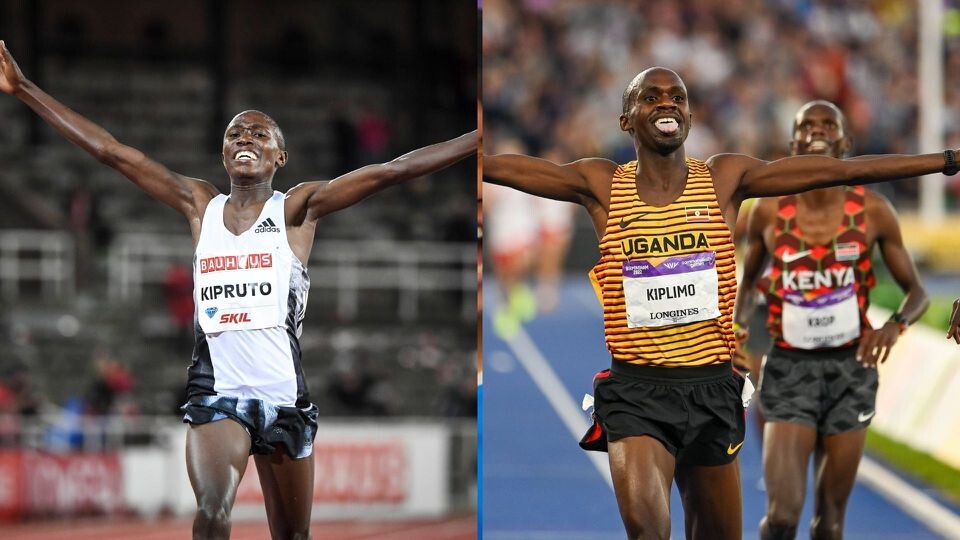
The Ugandan, just 23 years of age, has proven to be in impeccable form and he will be angling to destroy the Kenyan's world record over the distance. Kipruto set the world record back in 2020 on the same course, clocking 26:24 to win the race.
The courses in Valencia are usually known to be fast and produce great times and 2024 will be no different since the quality of the field attracted comprises Olympians and World Championships medalists.
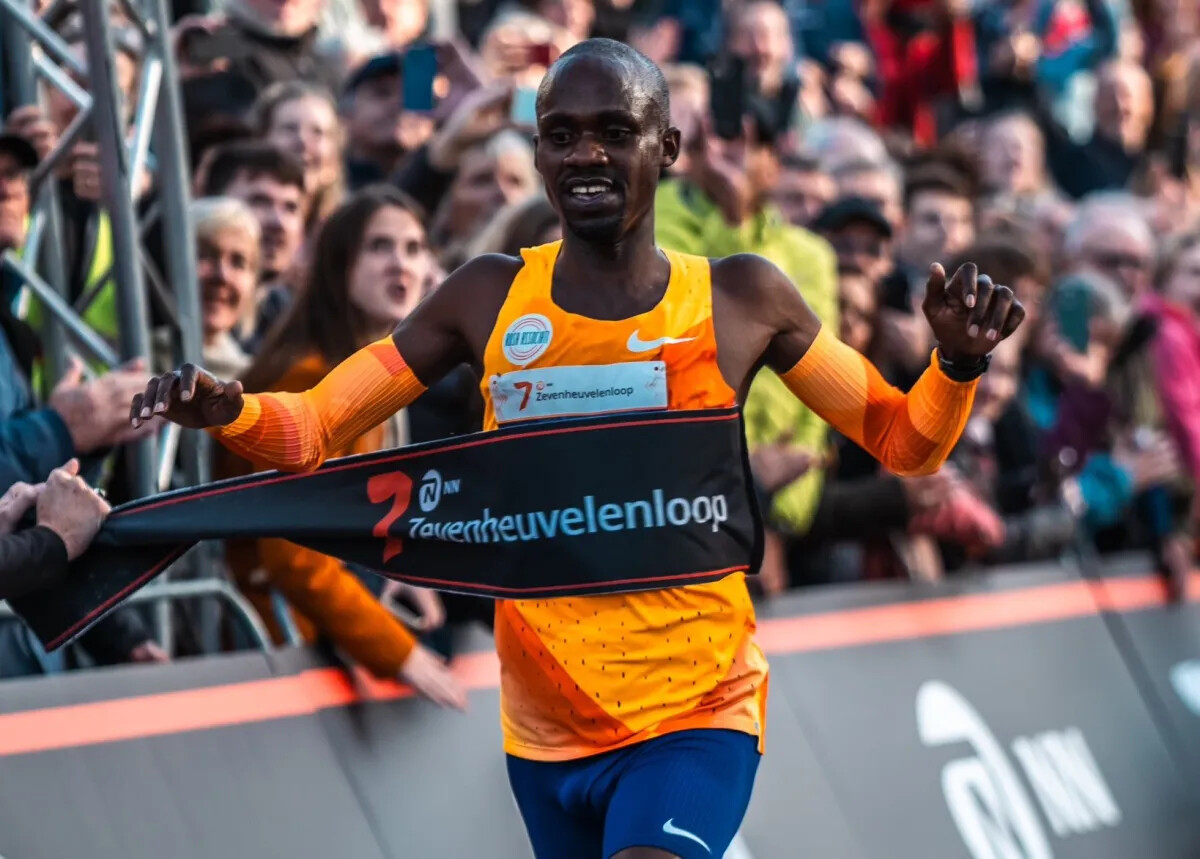
Less than two months ago Kiplimo equaled the 15km world record in the Netherlands (41:05) after coming back from injury.
He also holds the half marathon record after his dominant display at the Lisbon Half Marathon where he cut the tape in 57:31. Kiplimo has already proven to be in the form of his life and if the weather and all conditions are right, he will surely dip under Kipruto’s world record time.
Meanwhile, the men’s race has also attracted national 10K record holders like Rodrigue Kwizera (Burundi), Pietro Riva (Italy), and Richard Douma (Netherlands).
Additionally, Dominic Lobalu, a refugee athlete from South Sudan now naturalized Swiss, who tied the European 5K Record, will also be a competitor to watch.
Spanish elite athletes include Abdessamad Oukhelfen in men's and Águeda Marqués and Cristina Ruiz in women's, all arriving in excellent shape and with ambitious goals.
by Abigael Wuafula
Login to leave a comment
10k Valencia Trinidad Alfonso
Around the corner we have one more edition of the 10K Valencia Ibercaja, organized one more year by the C. 10K VALENCIA Athletics premiering the running season in Valencia. It is a massive urban race with more than 3,000 registered annually of 10 kilometers, where the maximum duration of the test will be 1 hour 40 minutes (100 minutes). The...
more...Agnes Ngetich to attack 10km world record in Valencia
Agnes Ngetich is eager to break the 10km world record when she heads to the 10K Valencia Ibercaja.
Trailblazing athlete Agnes Ngetich will attack the 10km road race when she heads to the 16th edition of the 10K Valencia Ibercaja on Sunday 14 January.
The race, which has already closed its registrations after exhausting the available numbers, will feature more than 100 elite athletes from fifteen different nationalities in search of their best marks in the city of running.
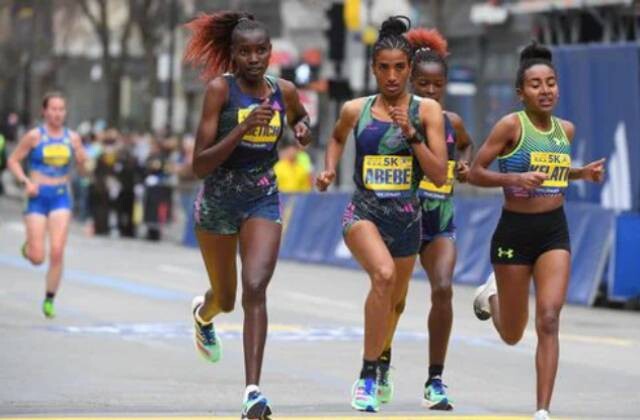
Valencia is known to produce faster times and world records with the current men’s world record that was set in 2020 by Rhonex Kipruto (26:24) still in place.
Ngetich will be hoping to go one step better with the aim to improve her best time achieved in Lille (France) in 2023. At the time, she was only 12 seconds behind the world record held by Yalemzerf Yehualaw (Castellón 2022, 29:14).
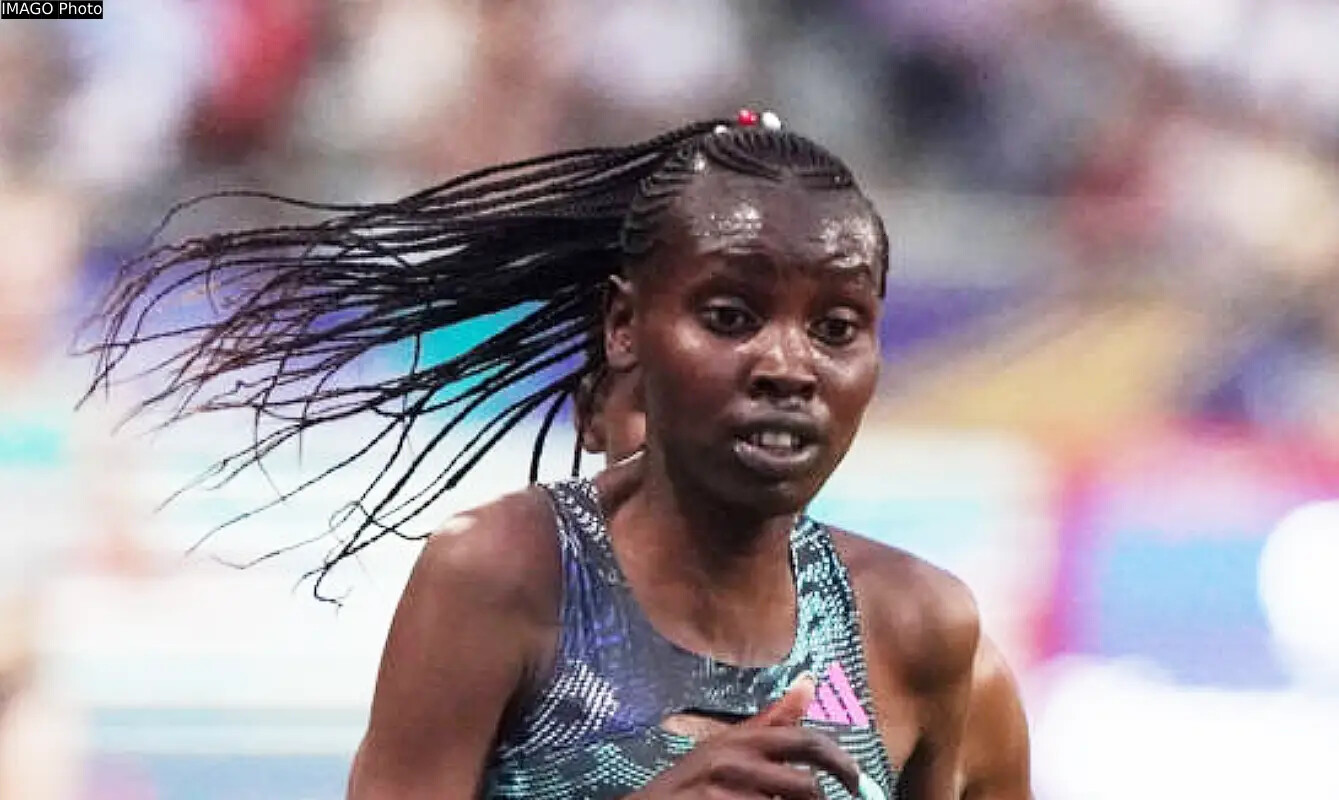
The coordinator of the elite athletes of the race, José Enrique Muñoz Acuña, has assured that the athlete will be keen to arrive at the starting line in top form to try to unseat the world record of the Ethiopian.
Ugandan athlete Jacob Kiplimo, current world record holder in the half marathon headlines the men’s field.
Rodrigue Kwizera (Burundi, 26:56), Pietro Riva (Italy, 27:50), and Richard Douma (Netherlands, 28:08) will also be in the mix.
Also on the starting line will be the refugee athlete from South Sudan who has recently obtained Swiss nationality Dominic Lobalu, and won the last edition of the 10K.
Abdessamad Oukhelfen will lead the Spanish elite in men and Agueda Marques in women, who come to the 10K in excellent shape and with great ambitions.
by Abigael Wuafula
Login to leave a comment
10k Valencia Trinidad Alfonso
Around the corner we have one more edition of the 10K Valencia Ibercaja, organized one more year by the C. 10K VALENCIA Athletics premiering the running season in Valencia. It is a massive urban race with more than 3,000 registered annually of 10 kilometers, where the maximum duration of the test will be 1 hour 40 minutes (100 minutes). The...
more...Cursa dels Nassos 2023 aspires to break the women's 5km world record
The participation of the Kenyans Beatrice Chebet and Lilian Kasait and the Ethiopian Ejgayehu Taye, world medalists, will be the great incentive of the Cursa dels Nassos 2023, which on December 31 aims to break the women's world record in the 5 kilometer race.
"We have made a very clear commitment to first-rate female representation. We wanted to have the podium at the last world championship in road athletics, which will make us a world reference in women's sports," said the Sports Councilor of Barcelona City Council. , David Escudé.
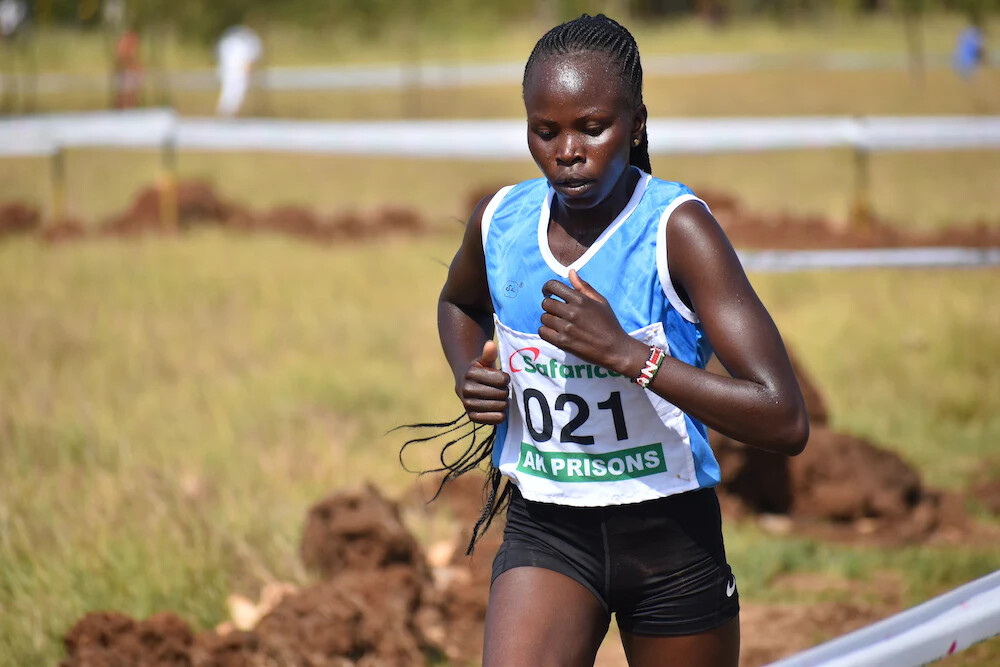
Escudé stressed that the objective of the contest will be to beat the world record for five kilometers in an exclusively female race.
"It is the record we are missing," said the councilor. The Cursa dels Nassos, which will reach its 25th edition and will organize an international 5 kilometer race for four consecutive years, still holds the men's and women's world records in a mixed race, established in 2021 by the Ethiopians Berihu Aregawi (12:49) and Ejgayehu Taye (14:21).
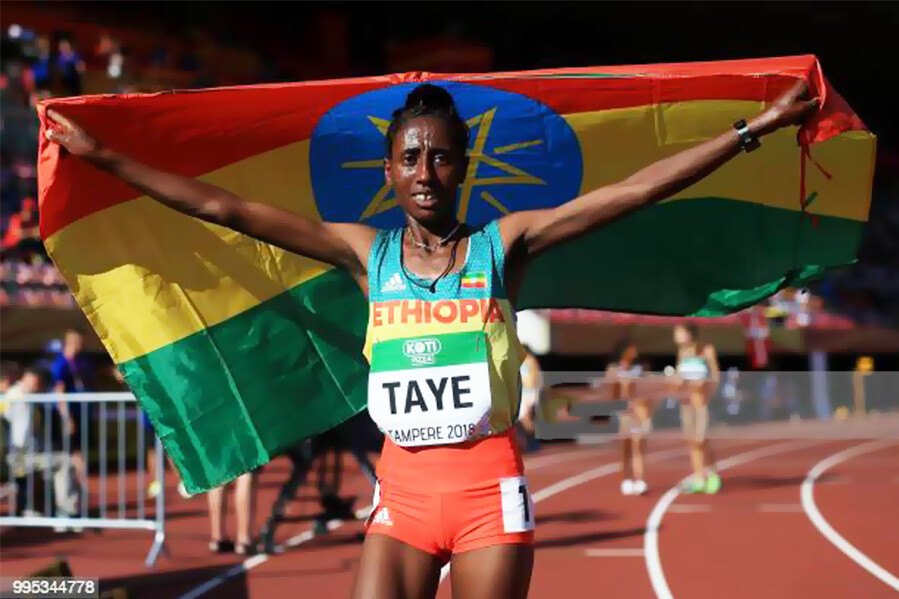
The possibility of breaking the women's record will be the great incentive of the last sporting event of the year. In the World Athletics Championships held last October in Riga (Latvia), Chebet came first (14:35), followed by Kasait (14:39) and Taye (14:40).
In the men's category, the participation of the refugee athlete from South Sudan living in Switzerland Dominic Lobalu stands out, whose best record in the 5,000 meters is 12:52, who will compete against some of the best distance specialists, among whom There are 18 athletes who clock less than 14:00, such as the Spanish Ilias Fifa and Abdesamad Oukhelfen.
Login to leave a comment
Cursa dels Nassos
Certain local traditions may strike you as funny, bizarre, or downright disturbing. You may know that the Catalans ring in the new year by eating one grape with each chime of the clock at midnight, but did you know about the man with many noses ('home dels nassos')? Folklore has it that there's a man who has as many noses...
more...The Fastest Man Without a Country
Refugee Dominic Lobalu has proven that he can beat the best runners in the world. But will that be enough to get him to the World Championships?
In May 2019, a 20-year-old runner named Dominic Lokinyomo Lobalu, from what is now South Sudan, won a 10K road race in Geneva, Switzerland. Lobalu, who was separated from his parents as a child during the second Sudanese civil war, was competing for the Athlete Refugee Team—a World Athletics-backed initiative that recruits talented individuals from refugee camps and helps get them into prestigious events around the world. A rising star in the ART ranks, Lobalu was living in Kenya at the time and training under the former marathon great Tegla Loroupe. As a teenager, he’d competed in the 1,500-meters at the 2017 World Championships. The 2020 Olympics seemed like an attainable goal. But after that race in Geneva, Lobalu made a decision that would radically alter the trajectory of his young athletic career: early the next morning, he absconded from his hotel with the intent of seeking asylum in Switzerland.
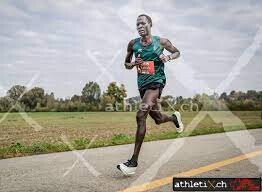
What happened next sounds like the stuff of sports fiction. A few months after he defected from the ART, a Swiss refugee center put Lobalu in touch with Markus Hagmann, a schoolteacher in Saint Gallen, who coached at a local track club called LC Brühl. Hagmann had been a competitive amateur in his day and still held the club’s record in the 3,000-meters—a formidable eight minutes and nine seconds. As soon as he saw Lobalu run, Hagmann recognized the young man’s stupendous talent and began entering him in local races to get a sense of just how fast he could run. It quickly became apparent that the Swiss national-level road racing circuit wasn’t going to cut it. Initially, Lobalu’s asylum-seeker status meant that he couldn’t leave the country. But in June 2022 he finally got a short-term residency permit, allowing him to travel. In his first international race, Lobalu outkicked Jacob Kiplimo, the reigning half marathon world record-holder from Uganda, to win the 3,000-meters in a world-leading 7:29:40 at a Diamond League meet in Stockholm.
“When we first met, it was not about getting a Diamond League win or creating a champion,” Hagmann says of his relationship to Lobalu. “It was just that there was a guy who had suffered and who needed help. And the thing that connected us was running.”
His breakthrough performance in Sweden last June has established Lobalu not only as a world-class athlete, but as someone capable of medaling at a global championship. Subsequent results have only affirmed his incredible potential. In the span of two weeks last September, Lobalu ran a 12:52 5K and a 59:12 half marathon; both among the fastest times in the world. According to Hagmann, Lobalu produced these results on a paltry 40 to 50 miles a week—less than half the training load of your typical world-class distance runner—as his body was still adjusting to the demands of high-volume training.
But the principal obstacle preventing Lobalu from having a shot at a glittering career on the international stage is perhaps more bureaucratic than physical. He currently has a short term, self-employed work permit in Switzerland and is in the process of applying for permanent residency, but acquiring full Swiss citizenship usually takes more than a decade. This means that Lobalu is technically ineligible to represent Switzerland at the Olympics or the World Championships. Meanwhile, since he chose to leave the ART to seek asylum in Switzerland, World Athletics says that he has forfeited the right to compete for the program. When I asked Lobalu if there was a way for him to represent South Sudan, he responded that that was “never an option.” As he put it to me: “Could you run for a country that took everything in your life? A country you’ve had no connection with for the last 16 years. A country that has one of the worst humanitarian crises in the world?” What’s more, when he left the country as a nine-year-old, South Sudan, which only became a republic in 2011, didn’t yet exist.
Earlier this year, the Swiss athletics federation put in a request with World Athletics asking the sport’s global governing body if there was any way for Lobalu to get out of his legal limbo in time to compete at the World Championships in Budapest in August. In an email, World Athletics confirmed that the Swiss had put in a request for a “transfer of allegiance” and the application was currently going through the “appropriate review process.”
The resulting uncertainty is the subject of “The Right to Race,” a mini documentary that was released today. (You can watch it here.) The film was produced by the Swiss running shoe company On, which began sponsoring Lobalu after its co-founder Oliver Bernhard happened to witness him eviscerate the competition in a Swiss road race in December 2019. It’s rife with gorgeous footage of Lobalu striding through alpine landscapes (and buying milk from a Swiss farmer) but the film smooths over some of the rougher edges of Lobalu’s story—most notably his reasons for defecting from the ART and his extreme ambivalence towards his country of birth.
In a 2021 article in Time, Lobalu is quoted as saying that while he was at Loroupe’s training camp, he was deprived of prize money that he had earned and generally treated as a second-class citizen of nowhere. When I asked Lobalu about this on a recent phone call, however, he demurred and simply said that the situation in Kenya “wasn’t working for him.” (On has also had sponsorship arrangements with the Athlete Refugee Team.) While one can hardly blame Lobalu for not wanting to ruffle any more feathers, his disenchantment with the ART program seems like crucial context that is noticeably absent from “The Right to Race.”
To be fair, the film does a good job of portraying the conundrum for World Athletics.
“We can’t continue to persuade countries to give visas to refugees who may abscond and seek refugee status in their country,” World Athletics official Jackie Brock-Doyle says in the film. “From where we sit, he couldn’t continue to be part of the Athlete Refugee Team because, if so, the message to every other refugee is: Look, isn’t he a hero? Why don’t you do the same?”
Brock-Doyle reiterated this to me via email, but said that World Athletics was working to find a solution for Lobalu: “We would like to stress that there is a huge amount of sympathy for Mr Lobalu’s situation given his terrible experience as a child fleeing civil war in South Sudan. He is undoubtedly a talented athlete, and if we were able to find a way to include him in the ART programme without seriously compromising the programme—or possibly damaging it irreparably—we would have done so.”
For his part, Hagmann told me that while he understands the predicament for World Athletics, he feels that a runner’s refugee status ultimately shouldn’t be contingent on where he happens to be seeking asylum.
Of course, the amount of attention Lobalu is getting—and any prospective “hero” status—has been amplified by his success on the track. Hagmann is adamant that their relationship is first and foremost about friendship, but it’s hardly a stretch to suggest that his star athlete would be less likely to have the backing of a foreign athletics federation and a global corporation if he were just another semi-pro. “The Right to Race” includes an interview with one of Hagmann’s friends, who explicitly argues that finding a way for Lobalu to compete isn’t a matter of humanitarian goodwill, but of athletic integrity. “There must be a way for him to compete as a neutral person. Not because he is a nice guy, but because he is the best. The fastest person, or if he’s the second- or third-fastest, needs to have the possibility to start at the World Championships and the Olympic Games.”
I asked Lobalu whether this had been on his mind when he made the fateful decision, four years ago, to remain in Geneva.
“I think, in running, there is nothing that you are sure about—where you can say that, This is going to happen in this way. It was just my decision. I took it without knowing what would happen. So I just took a risk. I said: Let me try.”
by Outside Online
Login to leave a comment
Bahrain Half Marathon course record holder Sebastien Kimaru Sawe keen to lower personal best at Berlin Half Marathon
Bahrain Half Marathon course record holder Sebastien Kimaru Sawe will be chasing his 4th half marathon title when he lines up at the Berlin 21km race on April 2.
Sawe is fresh from representing the country at the World Cross Country Championships in Bathurst, Australia where he finished seventh to help Team Kenya to the senior men's team title.
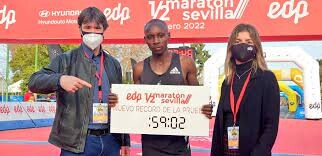
The Rome-Ostia Half Marathon champion said he is preparing for the race at his Kapsabet training base.
Sawe is the fastest on the startlist with a personal best time of 58:02 clocked while winning the Rome-Ostia race.
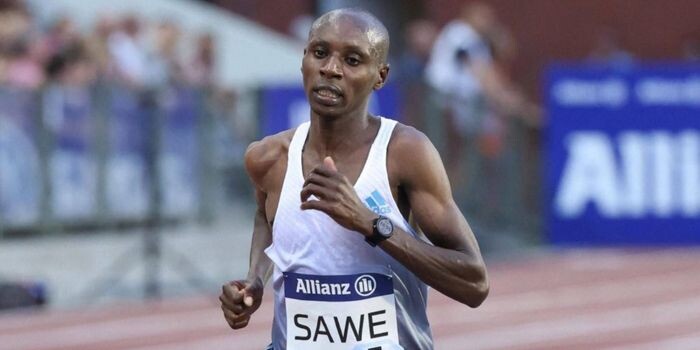
He will be in the company of compatriots Philemon Kiplimo (58:11), Alex Kibet (58:55) and Dominic Lobalu (59:12) while Ethiopian Gemechu Dida (59:21) will be spoiling for a fight against the Kenyan trio.
Other Kenyans in the men's race include Charles Wanjiku, Simon Ekidor and Patrick Kipngeno while Ludwina Chepngeno and Faith Kimutai will be the only Kenyans in the women's category.
"It will be my first time to compete at the Berlin Half Marathon and I am preparing well for the race. It's been a few days since running in a major race but I am hoping for good results on Sunday," said Sawe.
Sawe has won four of the five half marathons he has competed in. He is also the national cross country champion.
"I have had a good run in half marathons, winning Rome-Ostia and Bahrain with course records," said Sawe.
He regretted his seventh-place finish in Bathurst, saying the weather was unfavorable and the course hilly to his liking.
"The race was not that easy. It was a tough course and the weather did not favor us much but we tried our best to win the title for Team Kenya," added Sawe.
by Emmanuel Sabuni
Login to leave a comment
Berlin Half Marathon
The story of the Berlin Half Marathon reflects a major part of the history of the German capital. It all began during cold war times and continued during reunification. The events leading up to today's event could really only have happened in this city. Its predecessors came from East- and West Berlin. On 29th November 1981 the Lichtenberg Marathon was...
more...Eilish McColgan set for Berlin Half Marathon test
British record-holder faces key race in Germany this weekend ahead of marathon debut in London on April 23.
Three weeks before making her marathon debut in London, Eilish McColgan will tackle the Berlin Half Marathon on Sunday (April 2) looking for a confidence-boosting performance.

The 32-year-old has dealt with a number of injury niggles so far this year such as bursitis on her knee and Achilles and calf issues. Despite this she broke Paula Radcliffe’s long-standing British 10,000m record with 30:00.86 in California at the start of March although she subsequently withdrew from last weekend’s NYC Half.
After training in altitude in Colorado, she is now set to travel to Europe this week to run the Generali-sponsored Berlin Half Marathon where her rivals include Tsigie Gebreselama of Ethiopia and Ludwina Chepngetich of Kenya, whereas fellow Brits Samantha Harrison and Calli Thackery are also set to compete.

Gebreselama has run 65:46 – which she ran in Valencia last October behind Konstanze Klosterhalfen – whereas Chepngetich has run 67:30 and McColgan’s UK record is 66:26.
Gebreselama, 22, also won silver behind Beatrice Chebet in the women’s race at the recent World Cross Country Championships in Australia.
You can expect fast times because very much like the city’s annual marathon in the autumn, the half-marathon has seen quick times over the years. Sifan Hassan of the Netherlands ran 65:45 here in 2019 with the current course record held by Kenya’s Sheila Kiprotich Chepkirui with 65:02 from 12 months ago.
The men’s line-up meanwhile is led by Sabastian Sawe, whose PB of 58:02, plus fellow Kenyans Philemon Kiplimo and Alex Kibet, the latter being the 2022 winner in Berlin. Up against the Kenyans are Dominic Lobalu of South Sudan and Gemechu Dida of Ethiopia, whose PBs are 59:12 and 59:21 respectively.
by Jason Henderson
Login to leave a comment
Berlin Half Marathon
The story of the Berlin Half Marathon reflects a major part of the history of the German capital. It all began during cold war times and continued during reunification. The events leading up to today's event could really only have happened in this city. Its predecessors came from East- and West Berlin. On 29th November 1981 the Lichtenberg Marathon was...
more...What is the weirdest prize you've won at a race? Winners receive farm animals at this Swiss race
Most race winners receive medals, trophies or cash prizes. But at the Bulloise Bullfight race in Bulle, Switzerland, winners are given farm animals. This year, the Swiss 5,000m and 10,000m national record holder, Dominic Lobalu, won the 8.1-kilometre race in a course record time of 22:17 and was given an actual bull for his efforts.
According to the race website, the winner of the men’s elite race receives a bull, which stands as an emblem for the city of Bulle. The first female finisher gets a cow.

In the women’s elite race, Kasanesh Ayanew of Ethiopia covered the 6.2-kilometre course in 19:10 to come within five seconds of the course record of 19:05 and win the cow.
The Bulloise Bullfight event brings together around 4,000 runners annually and captivates a large and enthusiastic local audience. Although there is some uncertainty about the history of Bulle, historians say the town was named after its agricultural industry in the 10th century.
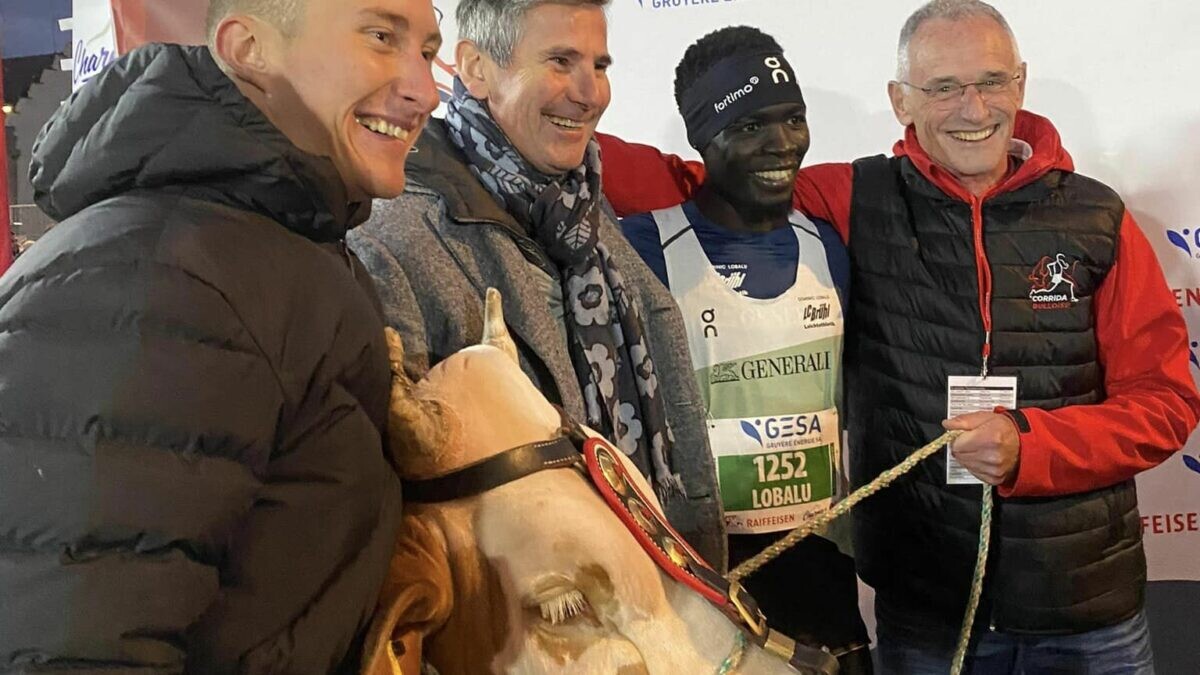
Although the race was founded in 1976, the custom of giving a bull as a prize began in 1985. A few years later, a cow was awarded to the fastest female runner.
If you are thinking what I’m thinking, “how will the two athletes get their massive prize home?” They won’t. The cow and the bull will return to the farm they came from, but will be named after and owned by the two champions.
by Running Magazine
Login to leave a comment
Ethiopian duo Mengesha and Teshome secure Ethiopian double in Copenhagen
Milkesa Mengesha and Tadu Teshome took top honors at the Copenhagen Half Marathon on Sunday (18). And with 15 men finishing inside an hour at the World Athletics Elite Label road race, the event witnessed record depth.
Mengesha, the 2019 world U20 cross-country champion, beat a quality field to notch up his second half marathon victory of the year, winning in a PB of 58:58. Teshome, meanwhile, smashed her PB to lead an Ethiopian 1-2-3, winning in 1:06:13.
After a steady opening 5km of 14:02, the pace dropped slightly in the following few kilometers of the men’s race as the large lead pack reached 10km in 28:10. The leading contenders – which included Mengesha and his compatriots Amedework Walelegn and Chala Regasa, Kenya’s Felix Kipkoech, Vincent Kipkemoi and Edmund Kipngetich, and South Sudan’s Dominic Lobalu – then started to increase the pace.
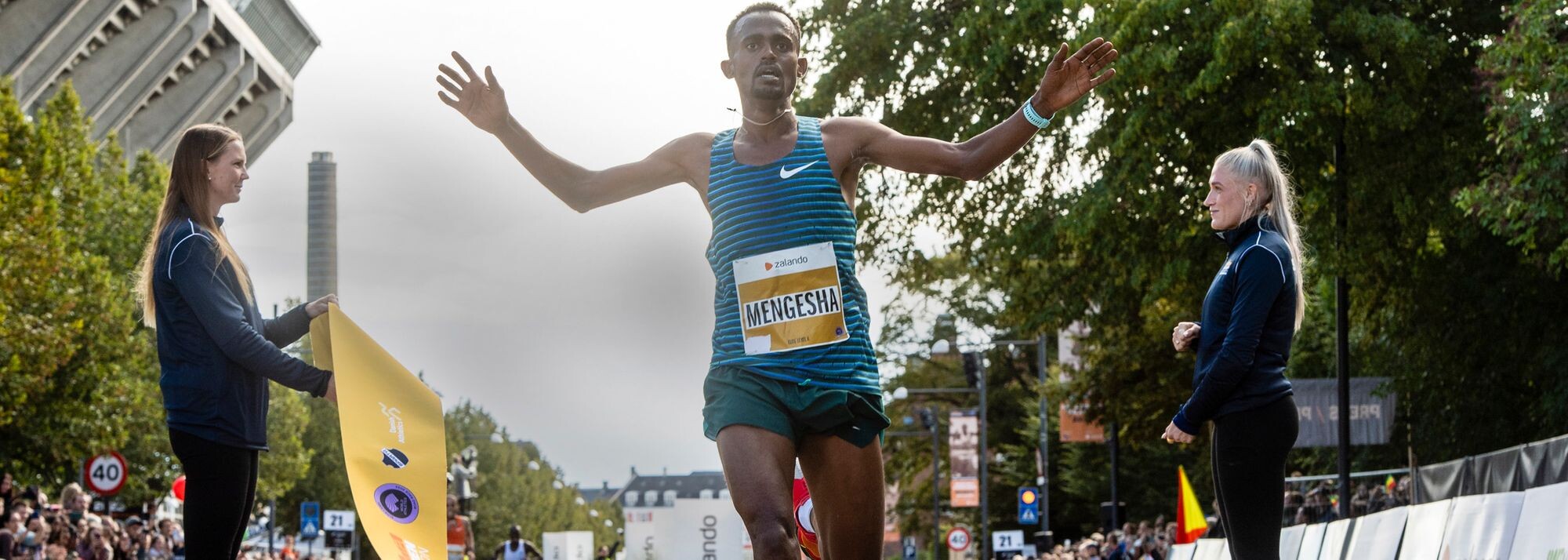
By the time of the 15km checkpoint, reached in 42:06, the lead pack was down to 12. They remained bunched together for a few more kilometers before Mengesha started to ease away, carving out a small lead before going on to win in 58:58. Compatriot Walelegn followed him home in 59:05, two seconds ahead of Kipkoech.
Lobalu, winner of the 3000m at the Wanda Diamond League meeting in Stockholm earlier this year, was fifth in a national record of 59:12. Further back, Switzerland’s 40-year-old Tadesse Abraham became the oldest man in history to finish inside 60 minutes for a half marathon, clocking 59:53.
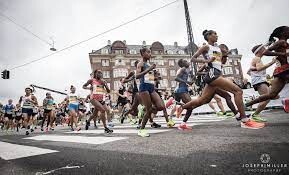
In contrast to the men’s race, which increased in pace as it went on, the women’s race started off remarkably quick but soon became a war of attrition as athletes tried to hold on as best they could.
When the first 5km was covered in a swift 15:19, most of the lead pack decided to ease off the pace, but Teshome and Tsigie Gebreselama maintained that tempo for another 5km, reaching 10km in 30:40 – inside both of their PBs for 10km.
Gebreselama then broke away from Teshome and opened up a gap of 30 seconds by 15km, reached in 46:39, but it didn’t last. Teshome came back over the next few kilometers and caught her compatriot with about two kilometers to go.
Once she was in the lead, Teshome continued to pull away and she went on to win in 1:06:13, 22 seconds ahead of Gebreselama, who was making her half marathon debut. Ethiopia’s Tiruye Mesfin almost caught Gebreselama, eventually finishing third in 1:06:42.
Leading results
Women
1 Tadu Teshome (ETH) 1:06:13
2 Tsigie Gebreselama (ETH) 1:06:35
3 Tiruye Mesfin (ETH) 1:06:42
4 Magdalena Shauri (TAN) 1:06:52
5 Eunice Chumba (BRN) 1:07:34
6 Sintayehu Tilahun (ETH) 1:07:41
7 Janet Ruguru (KEN) 1:07:51
8 Anchalem Haymanot (ETH) 1:08:09
9 Vicoty Chepngeno (KEN) 1:08:22
10 Betelihem Afenigus (ETH) 1:08:35
Men
1 Milkesa Mengesha (ETH) 58:58
2 Amedework Walelegn (ETH) 59:05
3 Felix Kipkoech (KEN) 59:07
4 Vincent Kipkemoi (KEN) 59:09
5 Dominic Lobalu (SSD) 59:12
6 Chala Regasa (ETH) 59:13
7 Edmund Kipngetich (KEN) 59:25
8 Matthew Kimeli (KEN) 59:39
9 Titus Kimutai (KEN) 59:44
10 Ronald Kirui (KEN) 59:51
by World Athletics
Login to leave a comment
Copenhagen Half Marathon
The Copenhagen Half Marathon was the first road race in Scandinavia and is one of the fastest half marathons in the world. The Copenhagen Half Marathon has been awarded with the International Association of Athletics Federation's (IAAF) most distinguished recognition - the IAAF Road Race Gold Label. Copenhagen Half Marathon was awarded the IAAF Road Race Bronze Label in January...
more...Kenyan Sheila Kiprotich Chepkirui breaks course record at Generali Berlin Half Marathon
Sheila Kiprotich Chepkirui produced the performance of the day, breaking the course record of the 41st GENERALI BERLIN HALF MARATHON. Despite very cold conditions with almost freezing temperatures at the start she clocked a world-class time of 65:02. It is the 18th fastest half marathon time ever run by a woman.
Fellow-Kenyans Joyce Chepkemoi and Irene Kimais took second and third with 65:50 and 66:34 respectively. For the first time in the history of the race three women broke 67 minutes.
The men’s race was also dominated by the Kenyans, who took all podium places. Alex Kibet was the winner with 58:55, missing the course record by just 13 seconds. Joshua Belet was second in 59:53 while pre-race favourite Abel Kipchumba finished third with 59:58. Including competitions staged parallel to the main race, organisers of the 41st GENERALI BERLIN HALF MARATHON registered a total of 33,336 athletes from 121 nations.
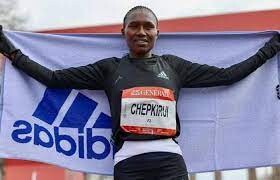
Cold temperatures and even a bit of snow just before the start did not provide good conditions for record attempts. Despite this 31 year-old Sheila Kiprotich Chepkirui stormed away right after the start. Guided by pacemakers she passed 10k in 30:32 and was on course for 64:30 at this stage of the race. “But during the final five kilometers I felt really cold and could not hold on to the pace,“ said Sheila Kiprotich Chepkirui. „I had hoped to break my personal best of 64:36, but at least I won the race with a course record. I am now planning to run my marathon debut later in the year, so maybe I will return to Berlin in September,“ said the Kenyan. She broke the course record of fellow-Kenyan Joyciline Jepkosgei who had won in Berlin in August last year with 65:16.
While Britain’s Samantha Harrison was the fastest non-African runner with a personal best of 68:12 in fifth place, once again Katharina Steinruck coped very well with cold conditions. She was the fastest German runner in sixth place with a personal best of 69:38. “For me it was fun today,“ said Katharina Steinruck.
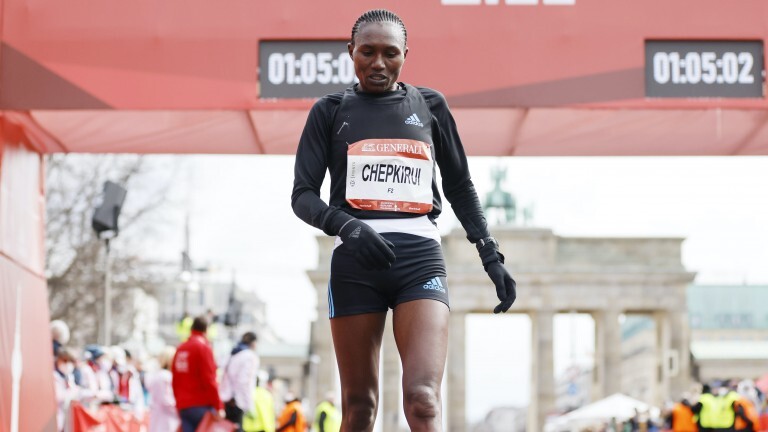
As expected Kenya’s elite runners dominated the men’s race as well. Early on they were forming the leading group. After a 10k split time of 28:00 it was Alex Kibet who took the initiative soon after that mark. The 31 year-old broke away and no-one was able to challenge him in the second half of the race. Kibet had entered the race with a PB of 59:06 and was the number two on the start list. The Kenyan increased his advantage to almost one minute and crossed the line at the Brandenburg Gate in 58:55. While he missed the course record Alex Kibet clocked the second fastest time ever run in the history of the GENERALI BERLIN HALF MARATHON and a personal best. “I hoped to run quite a bit faster, but it was difficult in the cold conditions. I have not broken the world record today, but at least I have won the race,“ said Alex Kibet.
Norway’s Zerei Mezngi and Dominic Lobalu of Switzerland were the fastest Europeans taking fifth and sixth positions in 60:42 and 61:01 respectively. Surprisingly Germany’s national record holder Amanal Petros, who clocked 60:09 last year, was not the fastest German in Berlin. Trying to bring his own record down to a sub one hour time he faded in the cold conditions and finished 15th in 62:21. Johannes Motschmann was the fastest German runner. Competing for the Marathon Team Berlin of race organiser SCC EVENTS he improved to 61:45 and placed tenth.
German double victory by Josie Hofmann and Felix Rijhnen in the skaters' race
A spectacular sprint led Felix Rijhnen (Powerslide) to his third victory at the GENERALI BERLIN HALF MARATHON. He beat Frenchman Martin Ferrié (EOSkates) by a razor-thin margin in 33:49 minutes. A German also won the women's race: Josie Hofmann (Powerslide) from Erfurt in 37:53 minutes. A total of 1,042 inline skaters celebrated the start of the roller season and the GERMAN INLINE CUP 2022.
On the course, a leading group around Valentin Thiebault (FRA/Powerslide) had initially broken away. At kilometer 15 Felix Rijhnen and Martin Ferrié managed to close the gap to the leaders and pull away. Until the finish they extended their lead to almost 50 seconds. In the final sprint to the finish, Rijhnen beat Ferrié by a razor-thin margin. In the mass sprint of the chasing pack sprint specialist Valentin Thiebault (FRA/Powerslide) secured 3rd place in 34:41 minutes. "I am mega happy that I could win after such a long and hard ice season. I'm surprised how well it went today, especially since I couldn't prepare that well due to illness," Rijhnen said after the race. "I was able to make full use of my experience over the many years in Berlin. It's just a pity that Kathi couldn't be there due to her Corona infection," said the Darmstadt native with regard to his wife Katharina Rijhnen (formerly Rumpus), who herself has won the GENERALI BERLIN HALF MARATHON four times.
In the women's race, too, a duel on the home stretch decided the race. Josie Hofmann and Marine Lefeuvre (FRA/EOSkates) distanced themselves from the field already at the halfway mark. Until the finish they extended their lead to more than 1:30 minutes. Particularly noteworthy was the spectacular, especially deep finish step with which Hofmann pushed her rollers across the finish line first after 37:53 minutes. After Lefeuvre (37:53 minutes), Belgian Sabrina Gaudesaboos (EOSkates) finished third in 39:25 minutes. "My goal was clearly to win today. But having just switched from the ice back to the road, I didn't know how good I was," Hofmann said. "My long-term goal is clearly the Olympics on ice, but I won't let inline skating out of my sight for that," the winner explained.
Top men:
Alex Kibet KEN 58:55
Belet Joshua KEN 59:53
Abel Kipchumba KEN 59:58
Fastes German men: Johannes Motschmann (Marathon Team Berlin) 61:45
Top women:
Sheila Kiprotich KEN 65:02
Jocye Chepkemoi KEN 65:50
Irene Kimais KEN 66:34
Fastes German woman: Katharina Steinruck (Eintrach Frankfurt) 69:38
Login to leave a comment
Berlin Half Marathon
The story of the Berlin Half Marathon reflects a major part of the history of the German capital. It all began during cold war times and continued during reunification. The events leading up to today's event could really only have happened in this city. Its predecessors came from East- and West Berlin. On 29th November 1981 the Lichtenberg Marathon was...
more...

